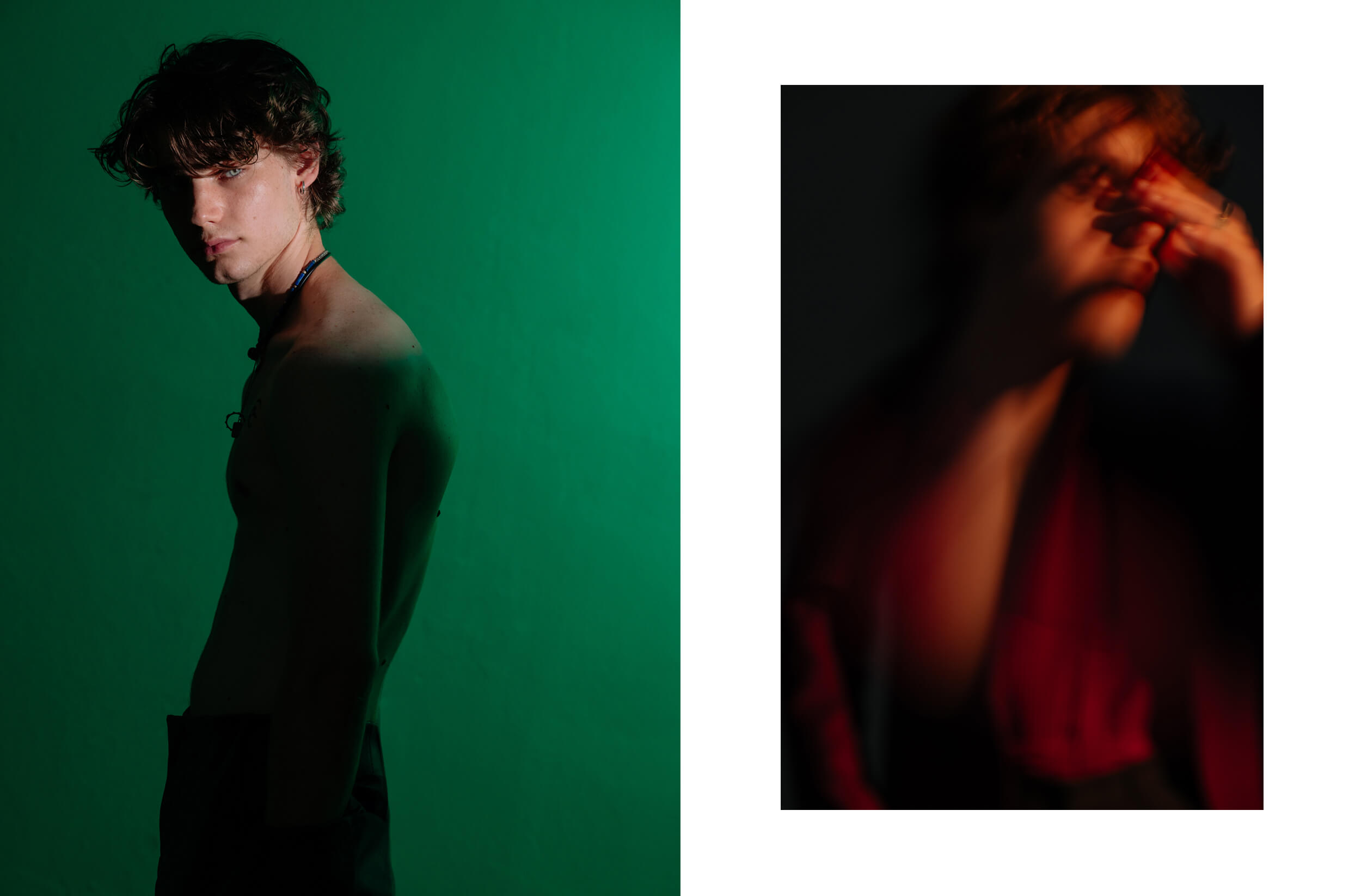Like in a chess game, Alessandro Bedetti carefully calculates every move, skillfully maneuvering the pieces of his world. Recently, the game led him to an international set, that of Roland Emmerich’s first TV series, “Those About to Die”, now available on Prime Video and Peacock. Set in Ancient Rome during the reign of Vespasian, amid power struggles and corruption, chariot races, and gladiatorial combat, it is a colossal production that portrays the darkest aspects of life in 79 A.D., which strangely at times mirrors our everyday life.
In this interview, Alessandro shares his journey, the challenges he faced, and the emotions he experienced on the set of such a grand production. He shares amusing anecdotes and profound reflections on acting and his personal experience, revealing the human side behind the actor.
What is your first memory related to cinema?
The first time I watched “Back to the Future” with my family in the living room. But also “Troy”, which I saw when I was very young with my parents, and “The Dark Knight”.
You are in the cast of Roland Emmerich’s series “Those About To Die”. What particularly attracted you to the project?
First of all, the fact that it was a gigantic project. Even just receiving the audition email floored me. Actually, it was the simplest audition I’ve ever done: I felt very comfortable with the casting director Michela Forbicioni, whom I think is amazing, and Greta, they helped me a lot during the audition. Now in hindsight, with the series coming out, I can say it was simple working on this project but also very strange. It was a gigantic set, and I shared it with huge actors: the day I met and worked with Anthony Hopkins, I will always remember as one of the most important and beautiful days of my life, not just my career, because he is one of my idols. It was incredible to see these people and realize that they are real people too and not aliens, even though they are “monsters” of acting. Meeting these giants of cinema gave me the strength to think: “So if they are real people too, I can do it too”.
I understood that if you don’t yet have all the tools to give your best on set, if you still have the experience to gain, when you work with actors like them, you don’t need to act: just looking into their eyes does everything. Through their skill and passion, you are already inside the character and atmosphere.
When I stepped onto the set, it was a bit like entering Narnia: crazy lights, impeccable costumes, to the point that playing a Greek slave in 79 A.D. seemed like the most natural thing in the world. As Anthony Hopkins says in his interviews: “Play the game of belief. And believe it, believe it, believe it,” even if you don’t believe it, pretend to believe it until you forget you’re pretending to believe it.
Participating in this series gave me incredible stage freedom, which is what ties me to and makes me passionate about acting, which for me is a moment where you can exorcise all the unspoken things of your daily life and experiment with a different personality without consequences on your normal life.
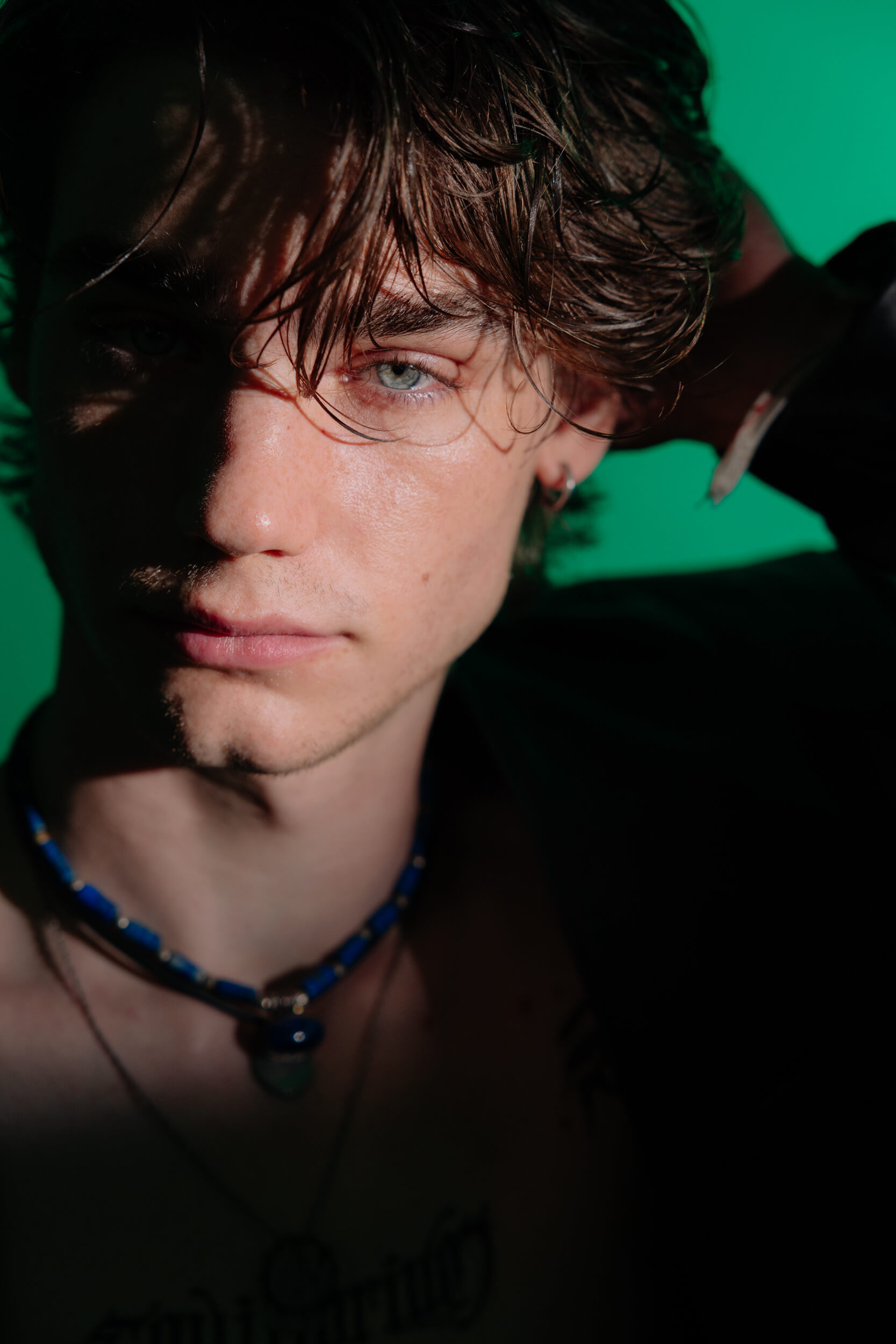
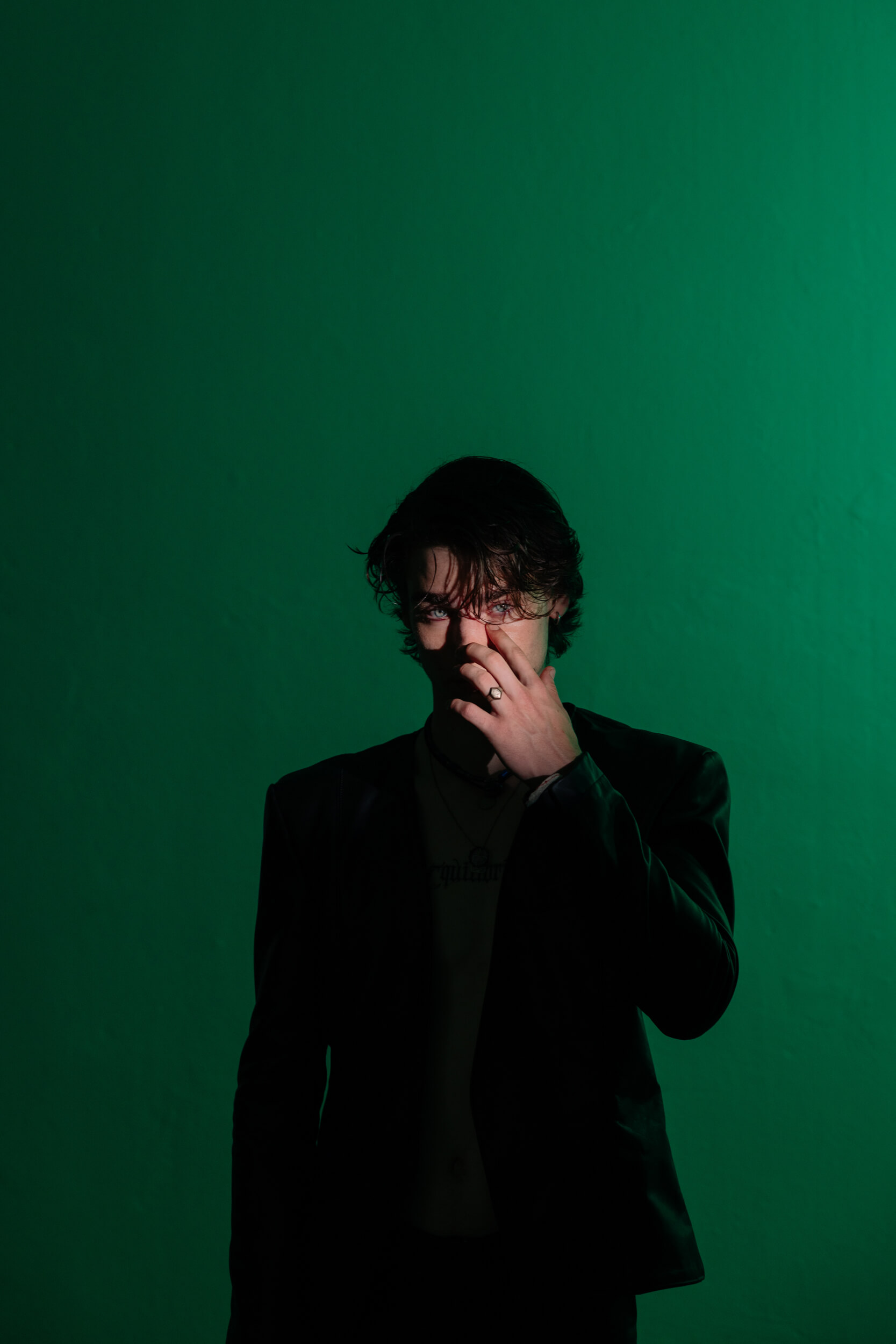
“Meeting these giants of cinema gave me the strength to think: ‘So if they are real people too, I can do it too’.”
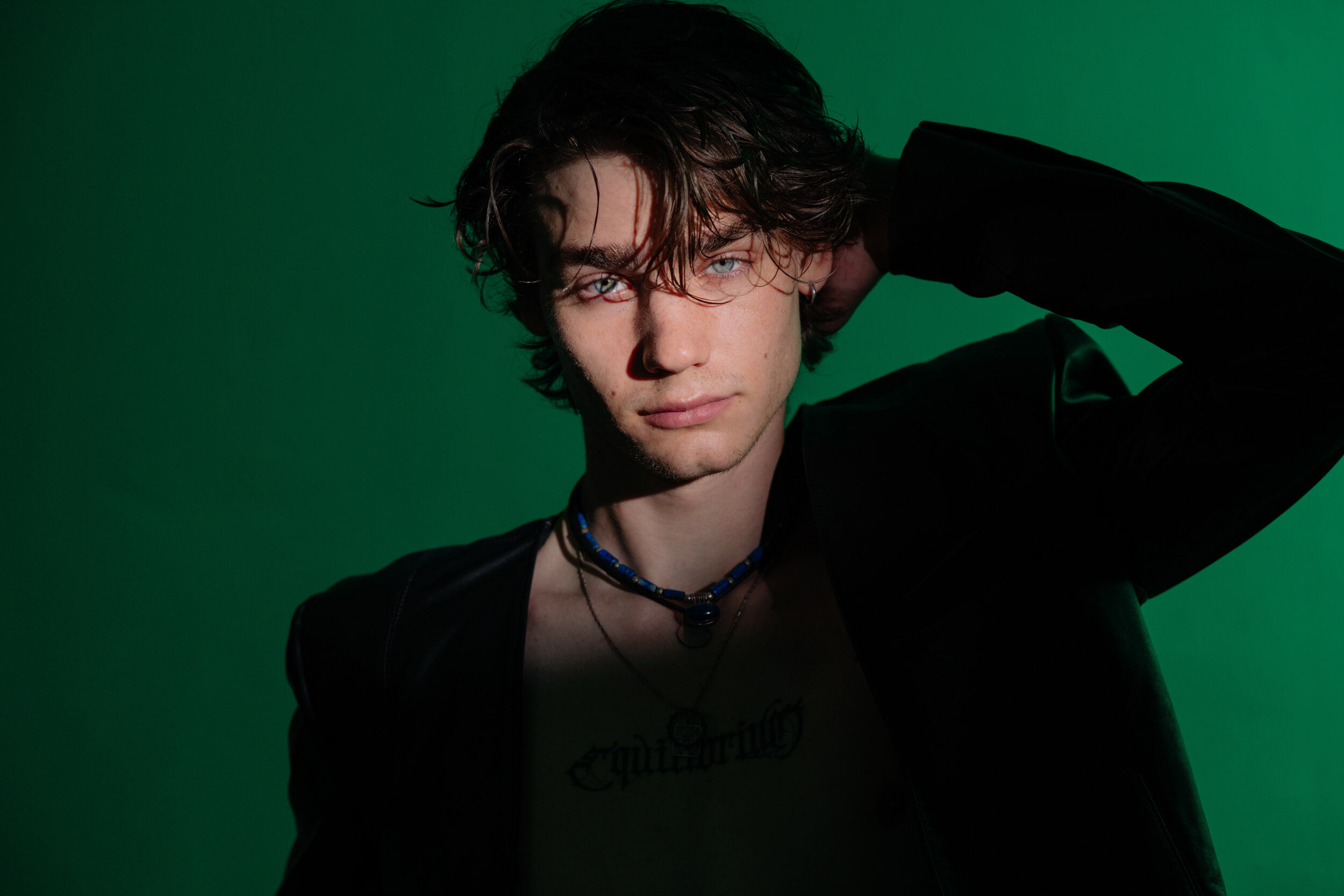
Your character, Hermes, lives in a world of violence and thirst for power. How did you approach the role, and is there something you learned that struck you, particularly about the historical period in which the series is set?
First of all, the work I did on my character was demanding. Hermes is the Greek slave of Domitian; he is always behind or beside him, understanding the intrigues and power games in play to reach the throne but cannot do or say anything. The only thing he can and tries to do, being Domitian’s companion, is to temper and soften, explain to Domitian where and when he is wrong. JoJo [Macari], who plays Domitian, advised me to work on the character starting with Stockholm Syndrome: during the character analysis, we decided that Hermes is in love with Domitian; there is a love story between them, albeit dramatic and hidden.
It’s a series where you see a lot! I know Roland Emmerich, the director, has always wanted to make a series about Ancient Rome in the style of “300” or “Gladiator”, and this was his chance to assert himself simply with himself, and I am proud to have participated in his first TV series. In Roland, I also saw, and this is a great intellectual and focus difference between Americans and Italians, the desire to achieve their goals to feel truly accomplished.
It reminds me of something Erich von Stroheim, a director and screenwriter from the 1920s, said, that in Hollywood you are worth as much as your last film; Totò, on the other hand, said that in Italy you are worth only when you die [laughs].
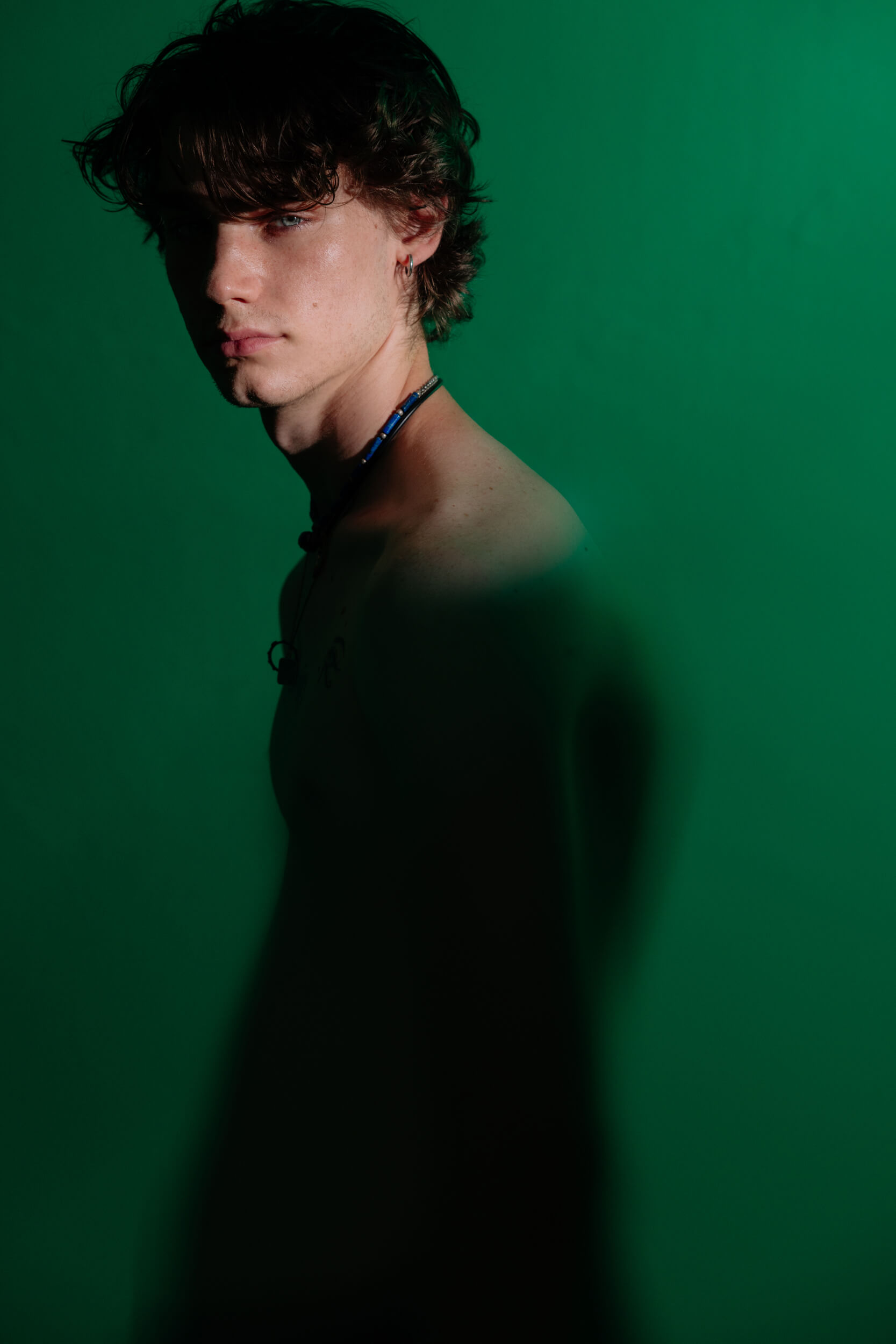
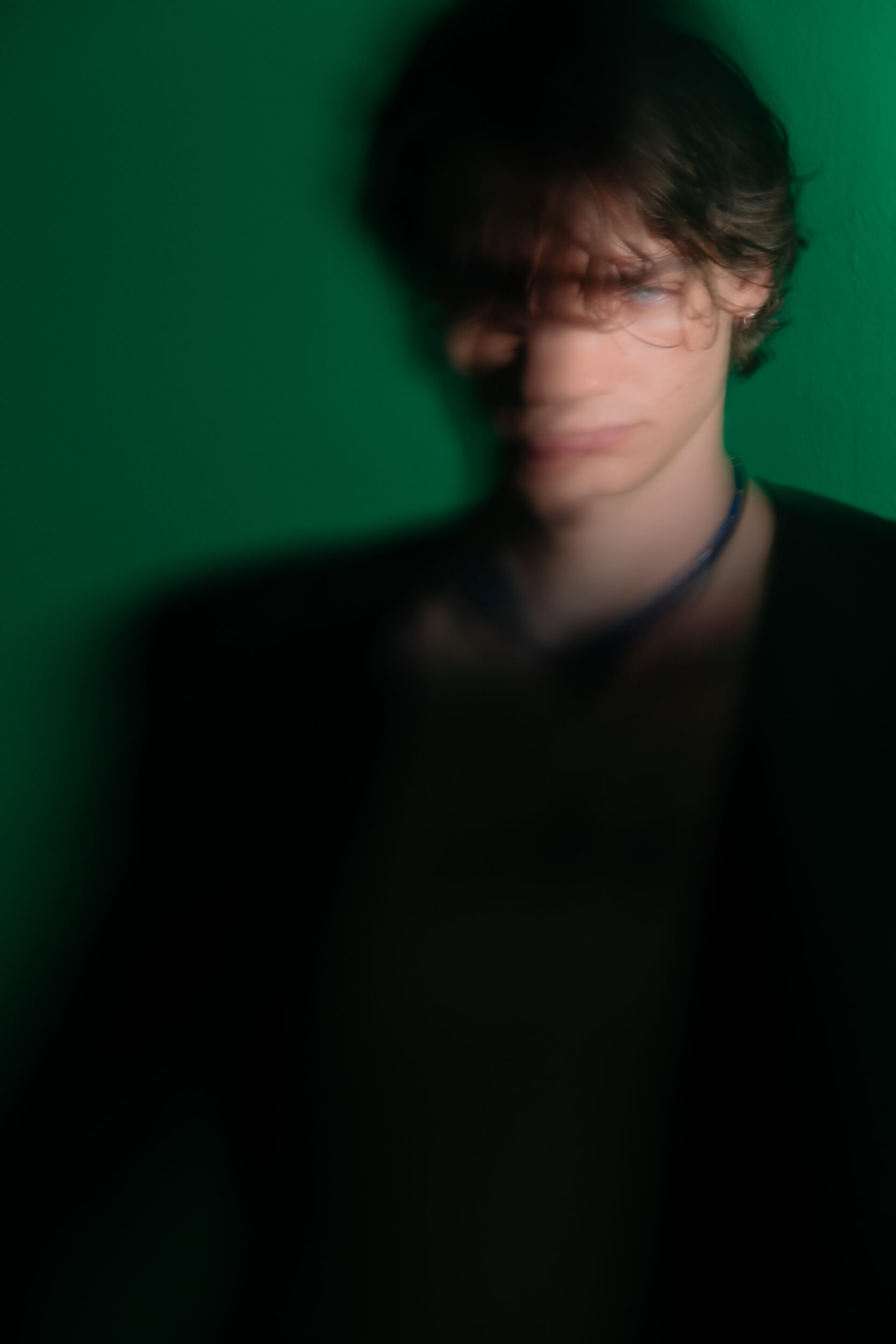
What did you discover about yourself, instead, in the role of Hermes?
Keep quiet and remain silent until it is the right moment to speak. That’s what I learned. I learned for myself Hermes’ strategy.
It was difficult to prepare this character also because he doesn’t speak, hence I researched a stance, a stage presence to speak with my eyes and body. I read Michael Caine’s book and watched many interviews with Christian Bale to understand how to play characters who stay silent. Michael Caine in particular talks about a director who once explained to him that if the character doesn’t have lines, the actor must not just “stay silent” but think of all the things they would like to say and do at that moment and not say or do them. This strategy completely changes your perception on stage.
I hope that my portrayal of Hermes shows how he felt like Domitian’s shadow, the little angel who can only limit himself to making him understand not to do stupid things because if you do in Ancient Rome, you die, and he suffers the consequences too. In short, I learned to keep quiet too, considering that I am a very instinctive person in everyday life, which often leads to mistakes. You know, in Ancient Rome, everything was a chess game: panem et circenses, every move caused a death, every time you moved a pawn forward, you knew that pawn would die, and if you didn’t move it forward, the knight would die. According to this logic, Hermes must try to stop Domitian, who is the player of the game but cannot do so aggressively because he is a slave. In short, it was a wonderful character to play, it helped me a lot to understand how to stay on the sidelines and how to manipulate the stronger ones. Something that is also very useful on set because you can’t afford to say certain things to certain people and you have to be very careful because a wrong move can destroy you.
A funny anecdote: I worked with Paul Mescal on “The History of Sound” by Oliver Hermanus, and on that set, when I asked him for advice, he said: “Watch everything and don’t be a dick” [laughs].
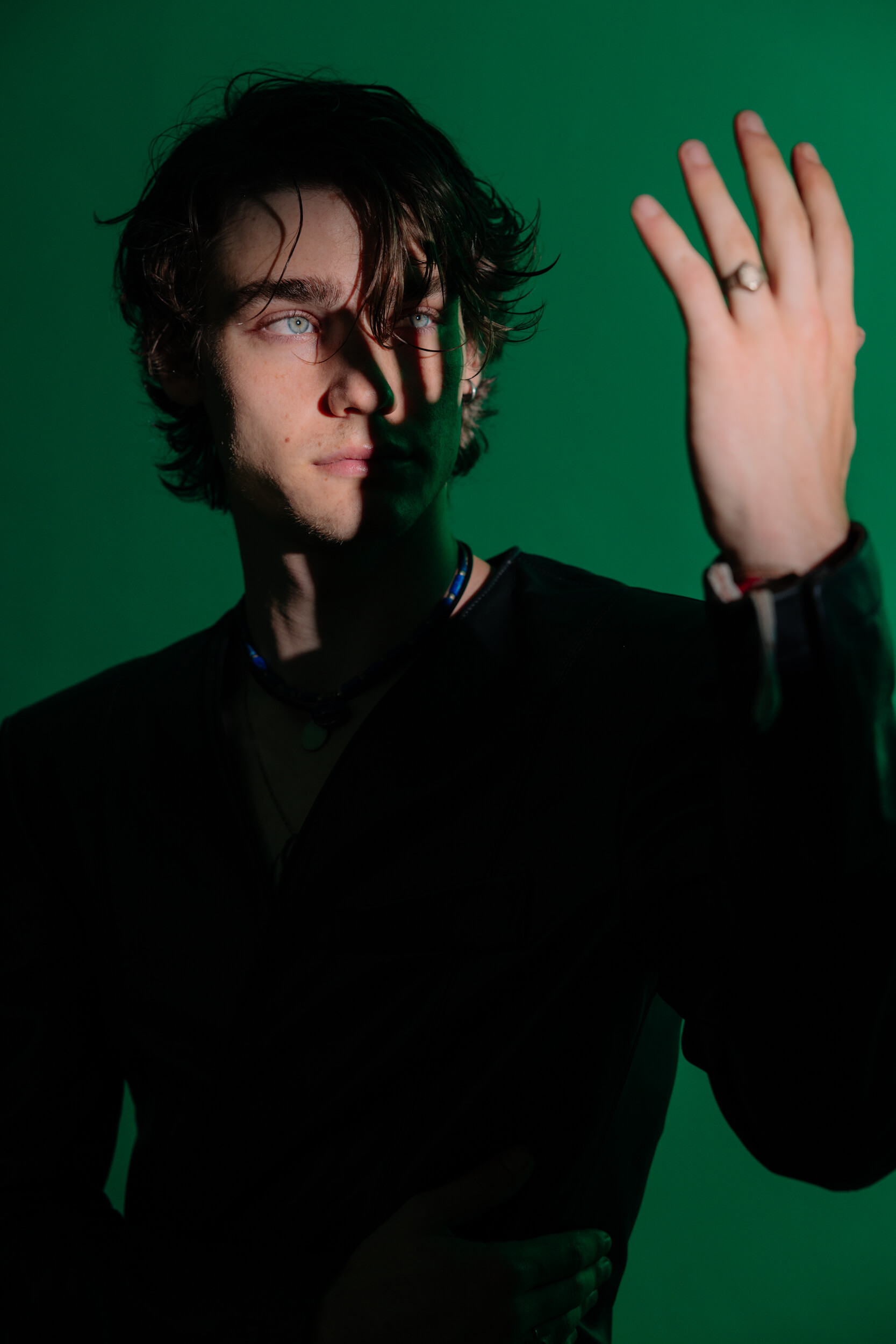
“…until it is the right moment to speak”
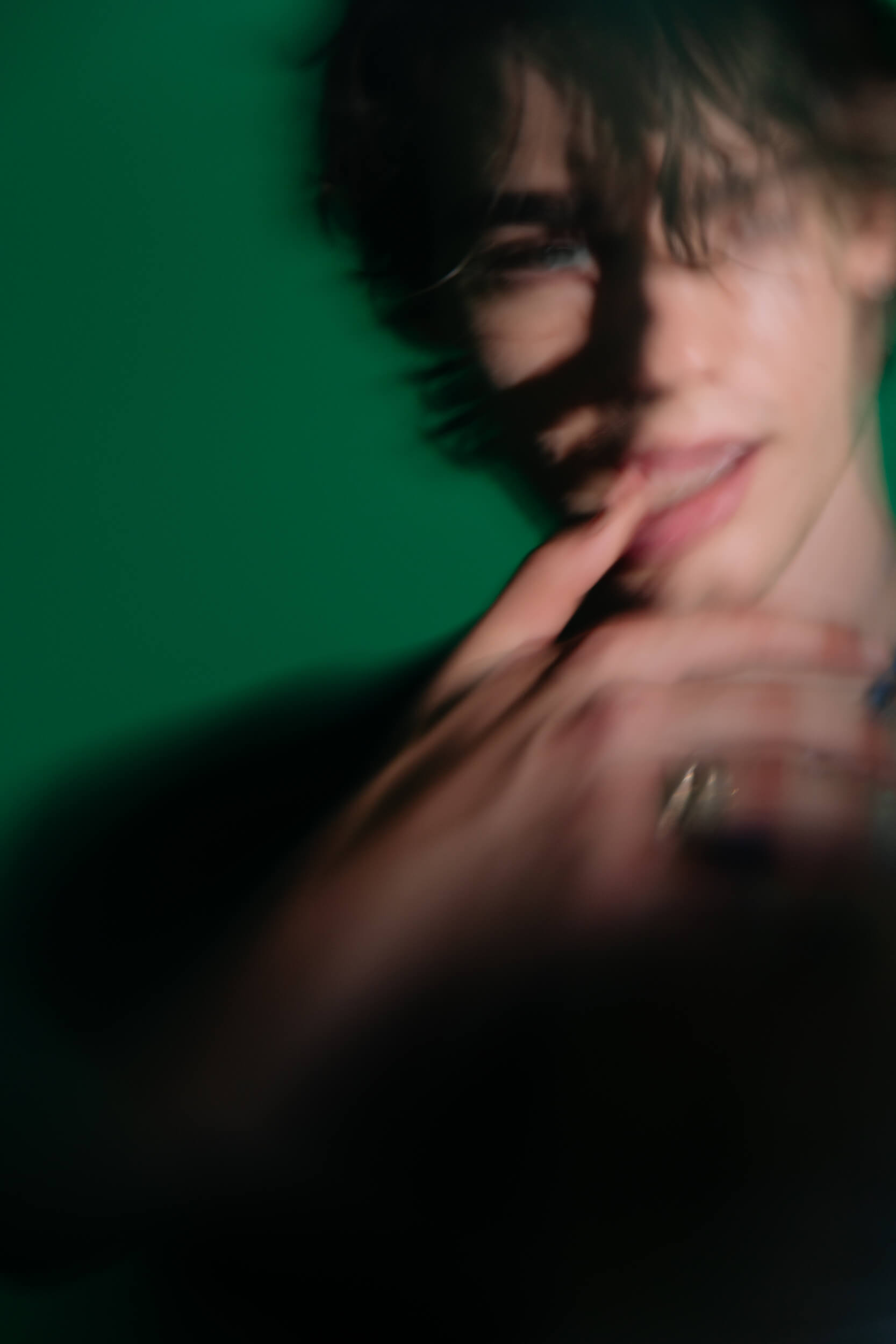
And on this set, were you more instinctive or rational?
On the set of “Those About to Die”, I was guided by a sort of emotional instinct. If instead of a character like Hermes, I had played a character in a post-apocalyptic film, I would have worked on instinct in the sense of “animal alert”. Instinct, in fact, is needed when you need to save yourself, but that’s animal instinct: we humans, however, no longer have any survival instinct, in my opinion.
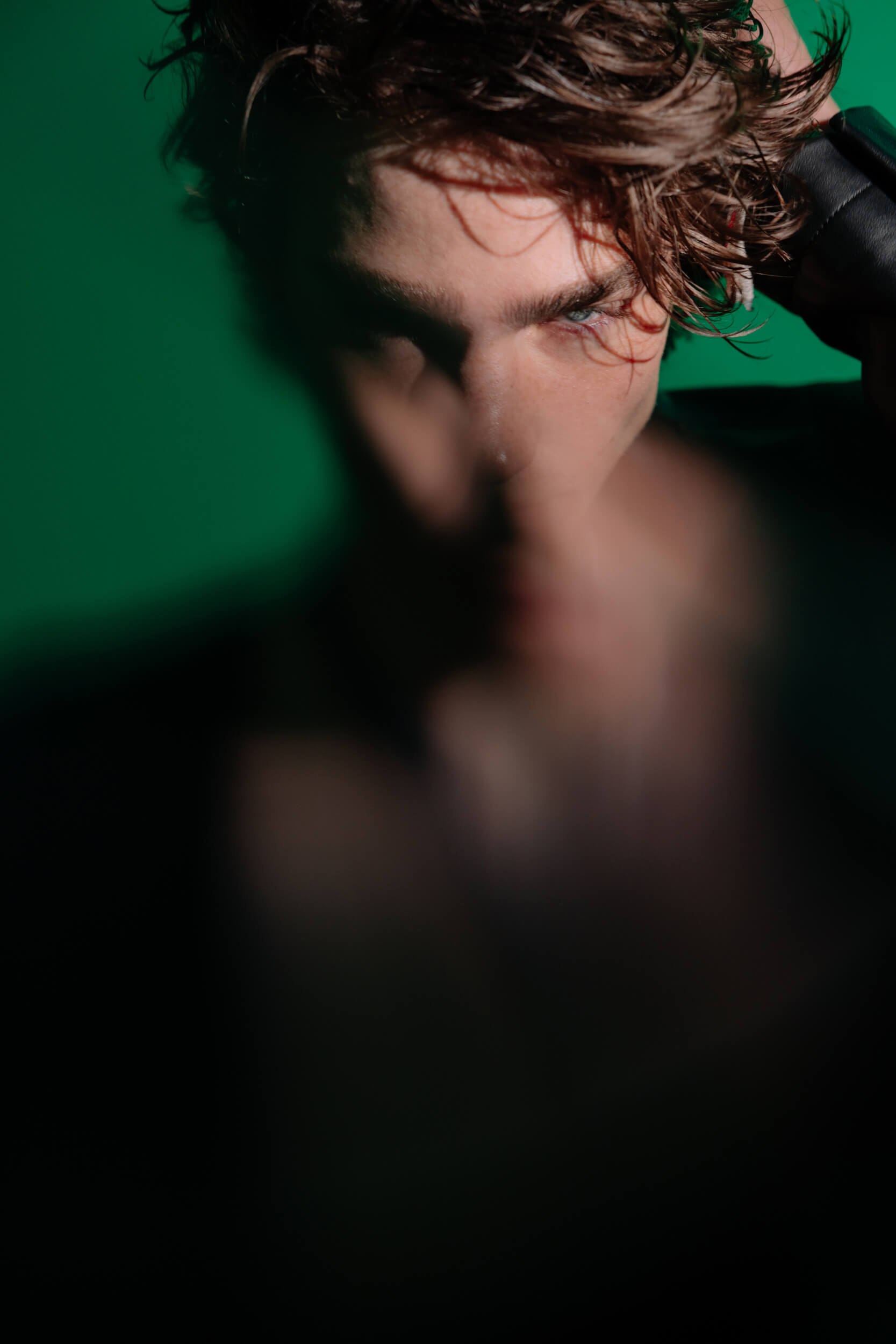
You filmed in reconstructions of the Colosseum and Circus Maximus, iconic settings. What was it like for you to work in these environments?
It was an indescribable experience.
One of the first things I saw was the rendering on the special effects program: a 3D map of all of Ancient Rome. Think that while we were filming, using led walls, Roland Emmerich was funding the production company of those LED walls to amplify and make continuous uploads! So, every day, the LED wall was better than the day before, amazing. It was all so right, delicate, balanced, visually and from a sensory point of view, that I almost felt guilty for the “little” I was doing in comparison. And you didn’t need to make any effort to believe it, practically, to pretend to be Hermes in 79 A.D., because in front of me, I had Roland Emmerich telling me what to do and beside me, JoJo and the rest of the cast making everything easier. Then, our cast was among the best I’ve ever seen, in my opinion, both aesthetically and humanly.
Roland made a very smart move: he chose, for his first TV series, “unknown” young actors. In short, if my first approach to Hollywood was this, with a wonderful, kind, and humble director like Roland Emmerich, I now say that I can and want to return to Hollywood tomorrow.
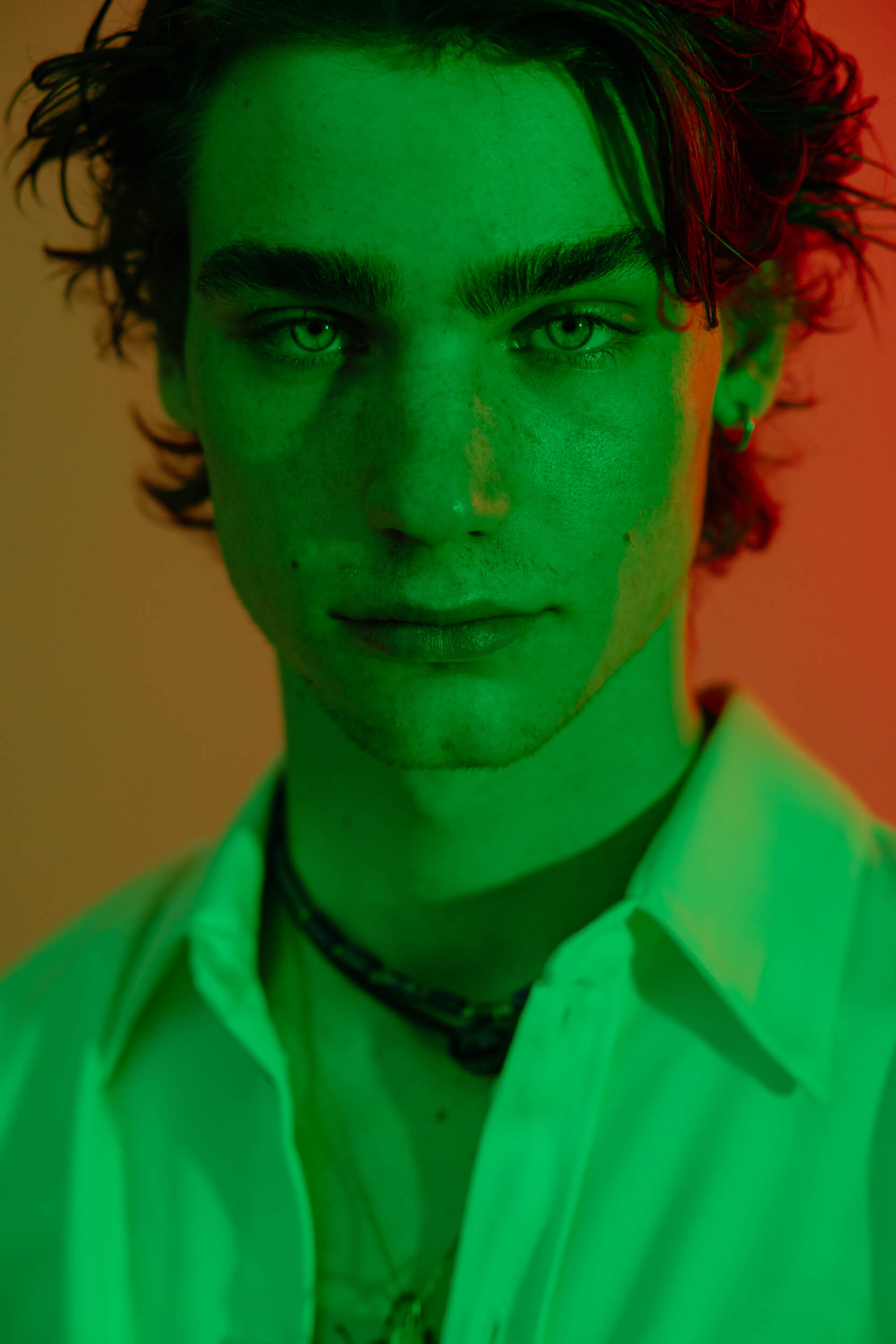
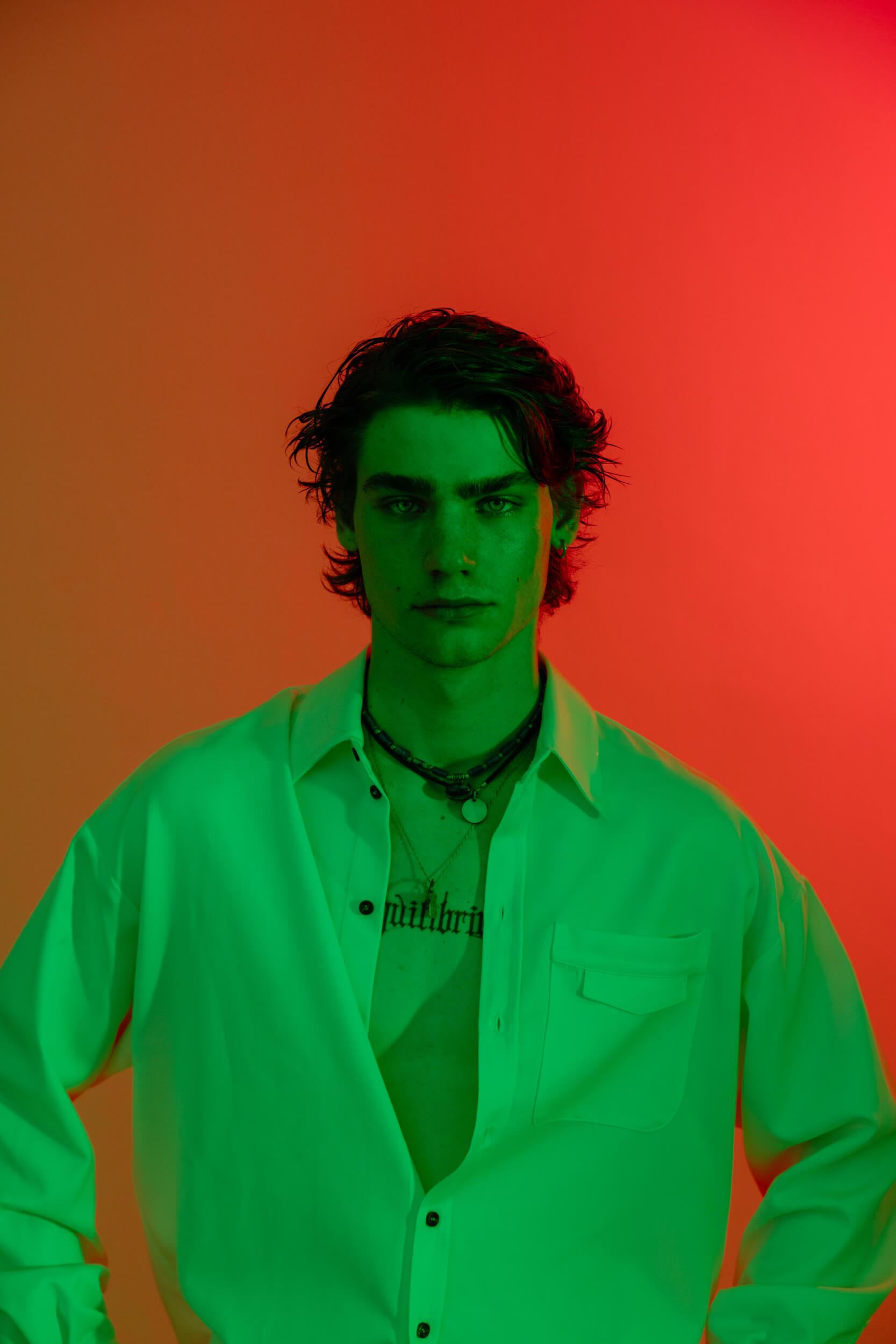
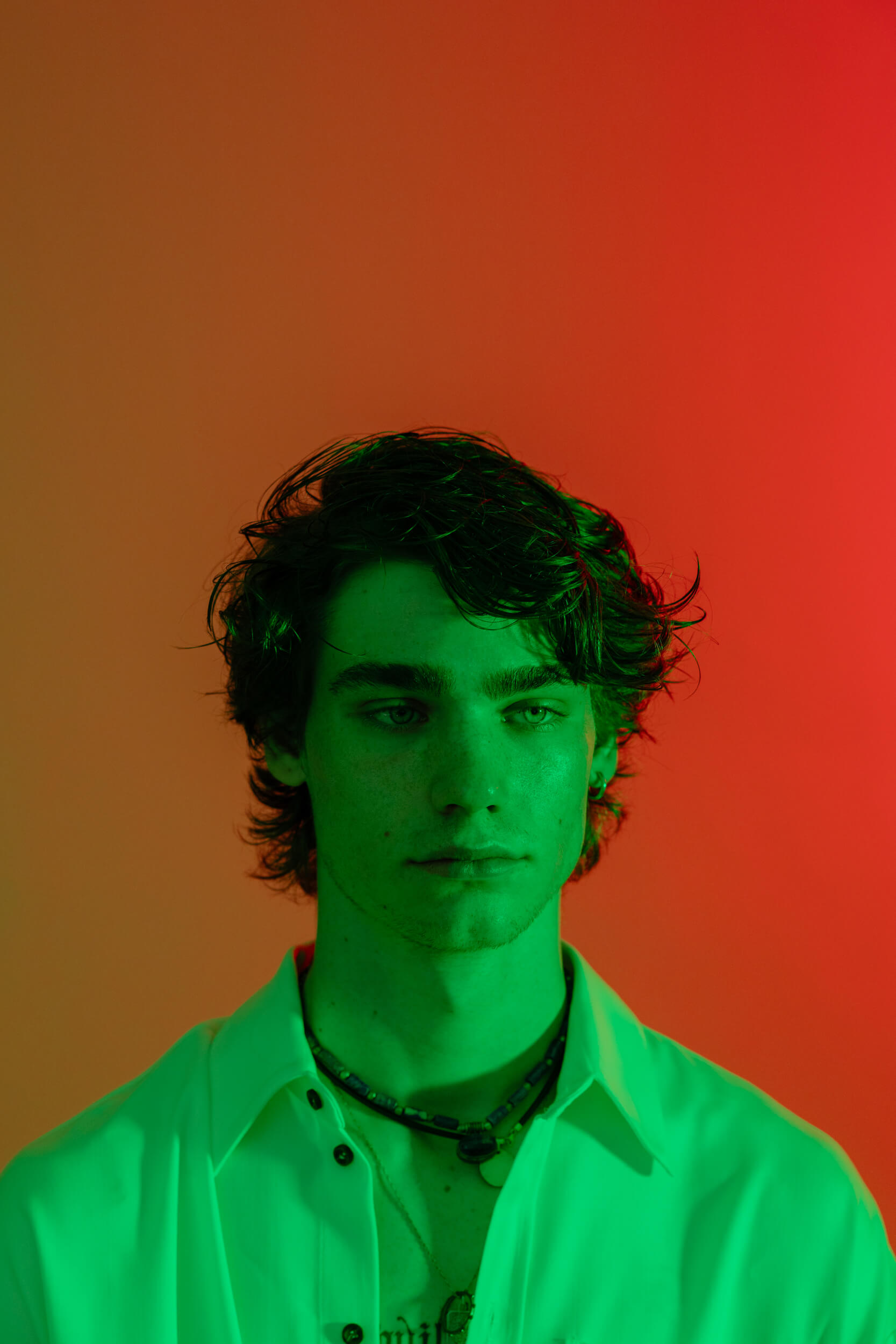
What message do you hope the audience will take away from watching this series?
I hope that people finally manage, as I did while acting in this series, to understand the mechanisms that continue to make people hate and hurt each other. I believe that the only thing you learn from history is that history repeats itself, and with “Those About to Die”, I hope that people understand how evil can destroy everything, even if you are the Emperor because today you are the Emperor, but tomorrow you might be killed, and another Emperor will come, because if you are the strongest, everyone wants what you have, your rank, your position, because everyone wants to be the strongest, and so you will die. I would like people to understand how stupid and useless the battle for power is, and that if we were governed by AI, it would only be a positive change because artificial intelligence does not harm anyone. The only government I respect and trust based on my morals is the one proposed by Henry David Thoreau in his essay on Civil Disobedience: because wars are not waged by men, but by leaders, by kings.
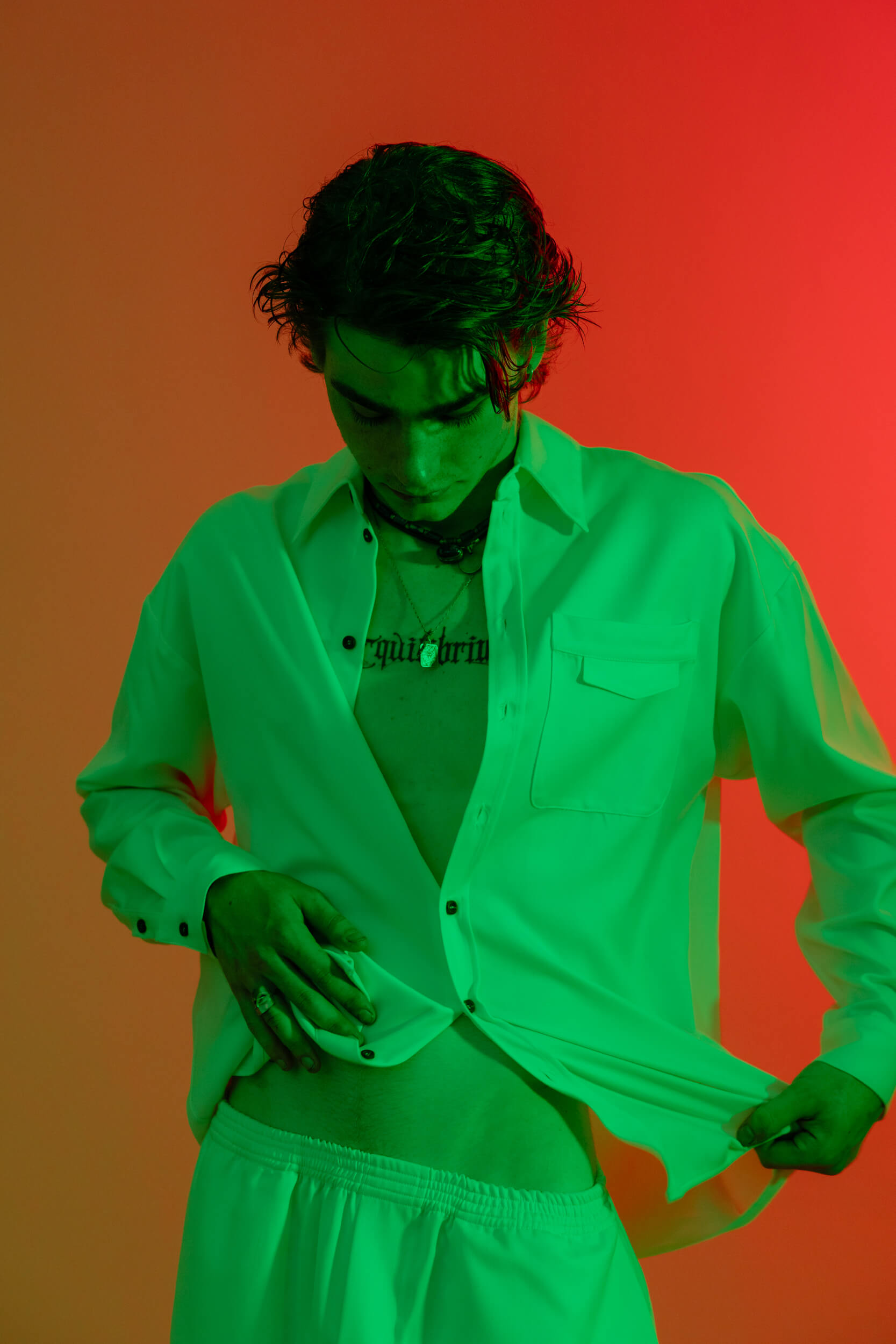
“I hope that people understand how evil can destroy everything”
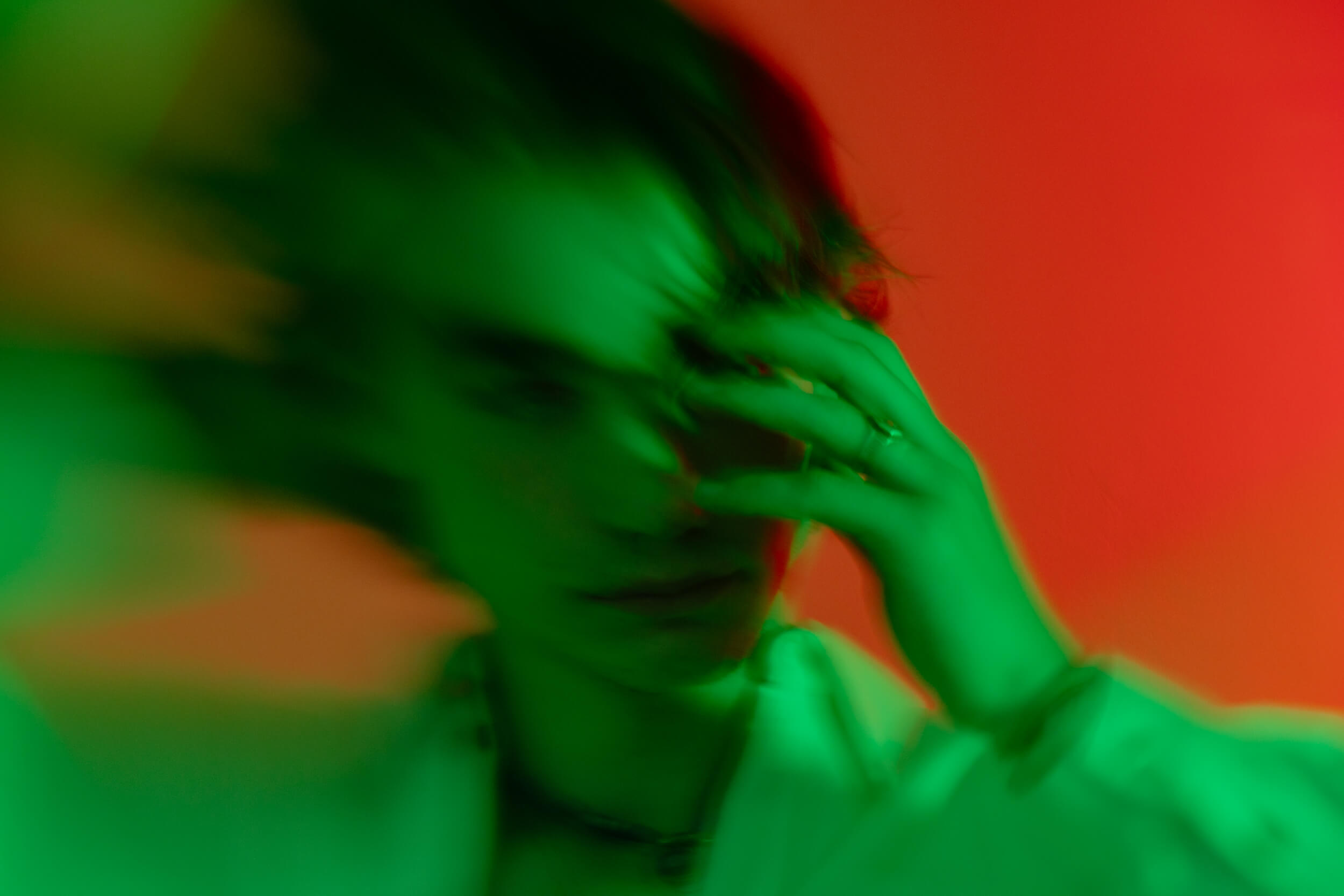
Since your Instagram bio currently features an iconic quote, “why so serious”… What is your favorite movie quote?
Choosing one is really tough, but I have it: “Good morning! And in case I don’t see you … Good afternoon, good evening, and good night!” from “The Truman Show”.
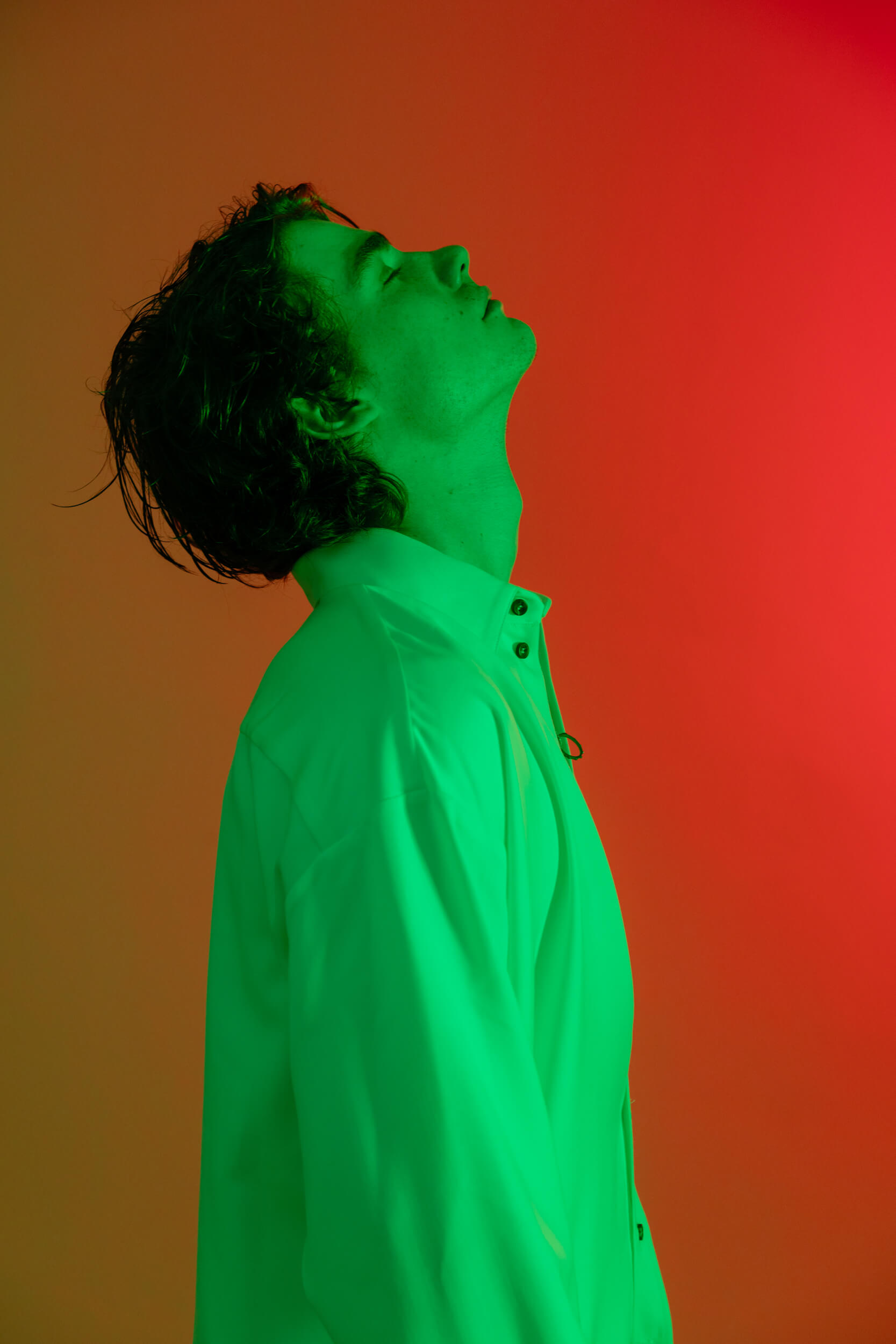
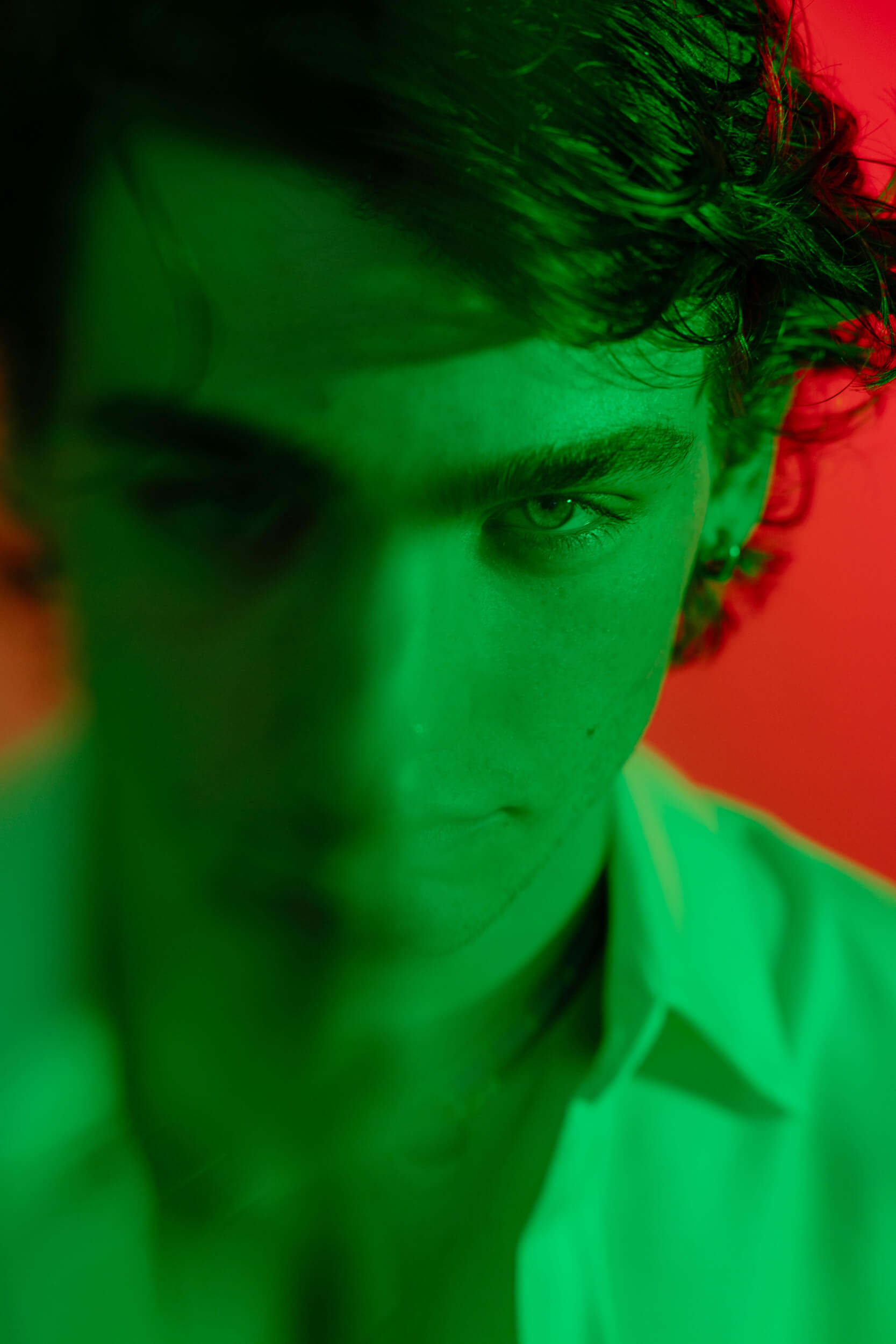
An epic fail on set?
In “Those About to Die”, there was a scene where we had to wear beautiful, very long tunics, which kept getting caught everywhere [laughs]. So, it happened quite often that we would walk and trip.
Then, another hilarious story: we had to shoot a scene in the imperial baths, and Jojo was very sick that day, so they filled the tubs with hot water to prevent him from getting even sicker. The problem was that the water temperature was so hot that Jojo and I, once inside, couldn’t move, we were all red and we almost fainted [laughs]. There was smoke everywhere, a lot of lights on us, and Jojo and I were completely detached and dissociated [laughs]. Once out of the water, we were practically steaming!
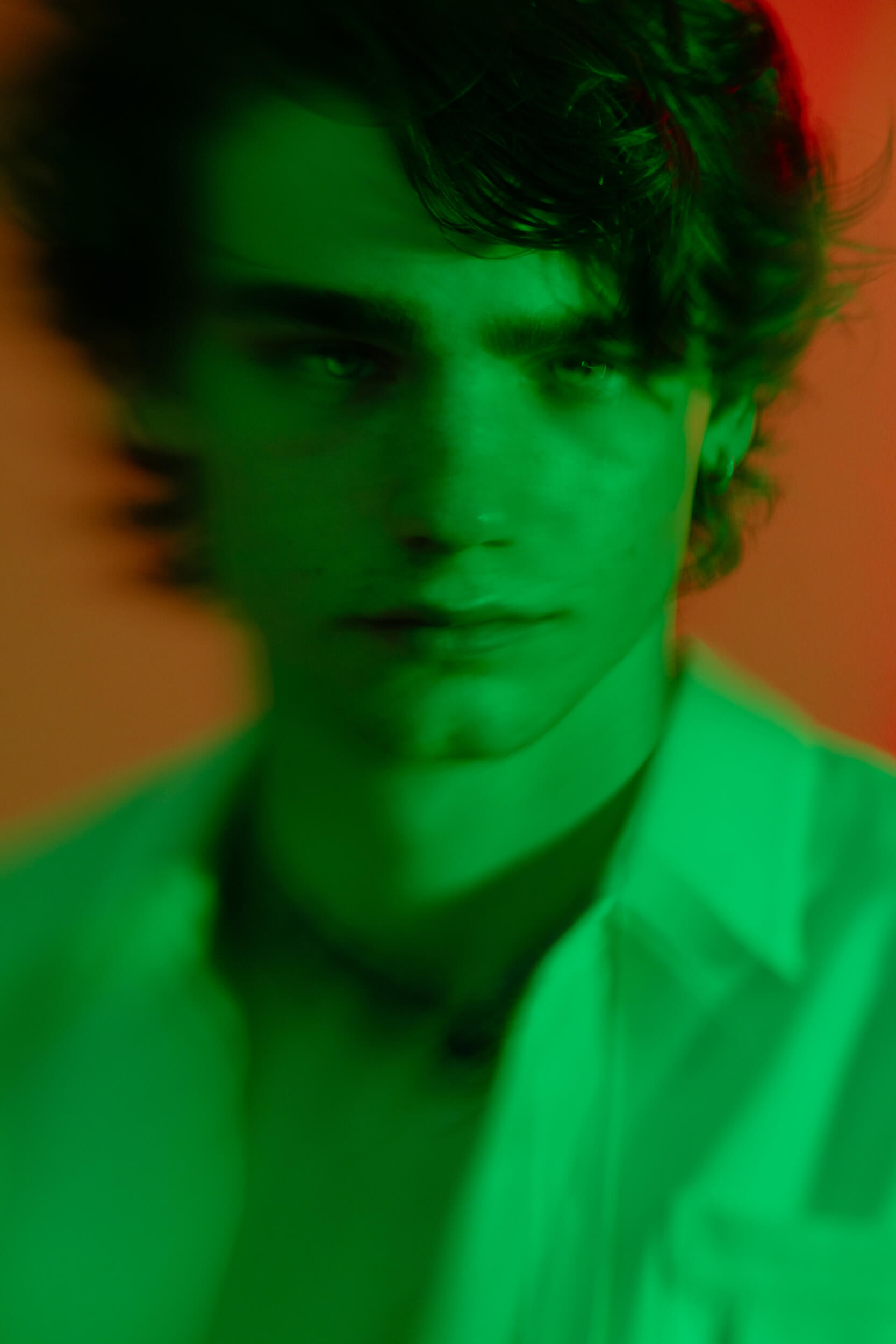
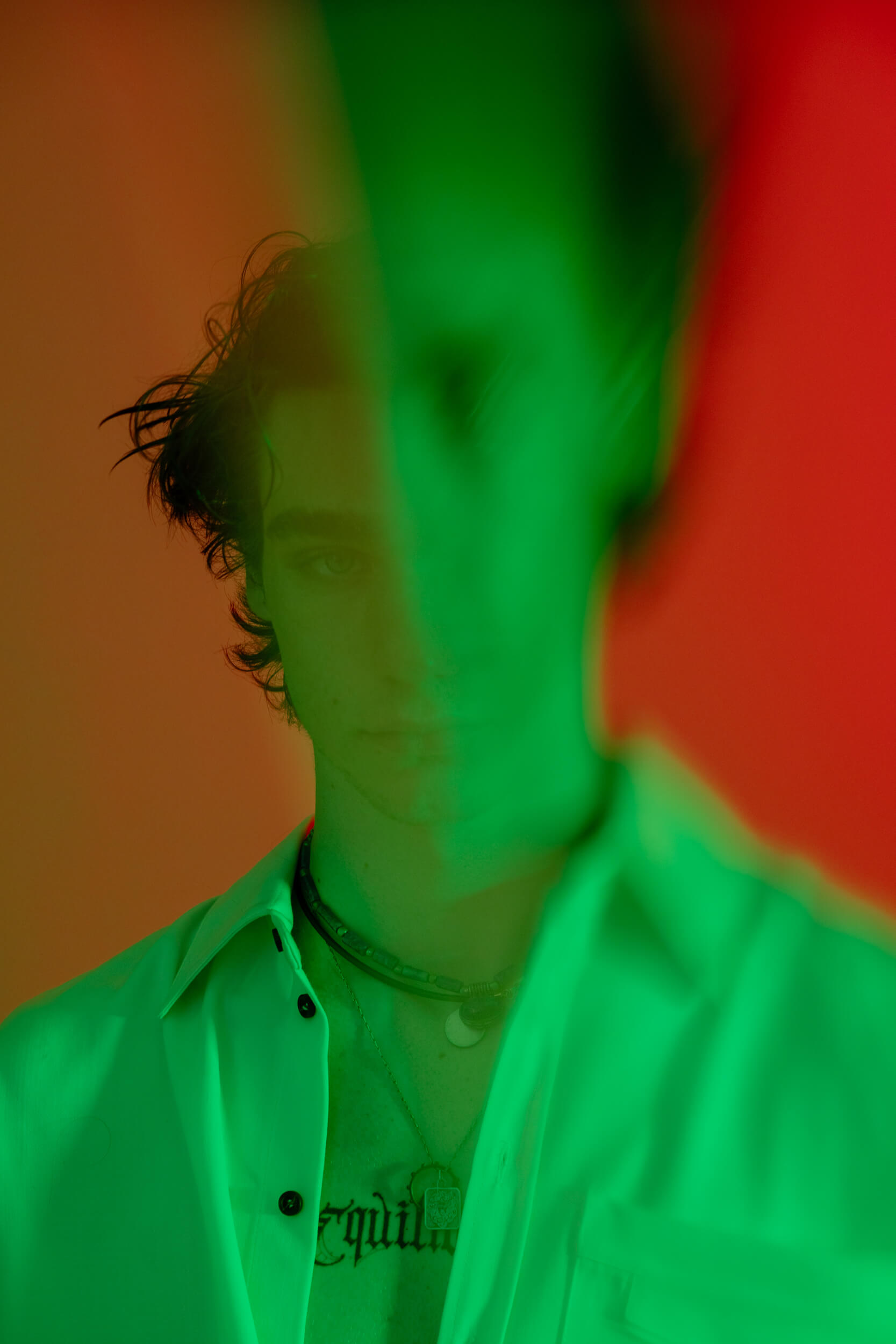
Your must-have on set?
When I can, I wear an ankle bracelet with a ring from my mother attached to it. I always try to keep a personal object with an emotional connection, something no one can see. It helps me refocus when I go too off-script.
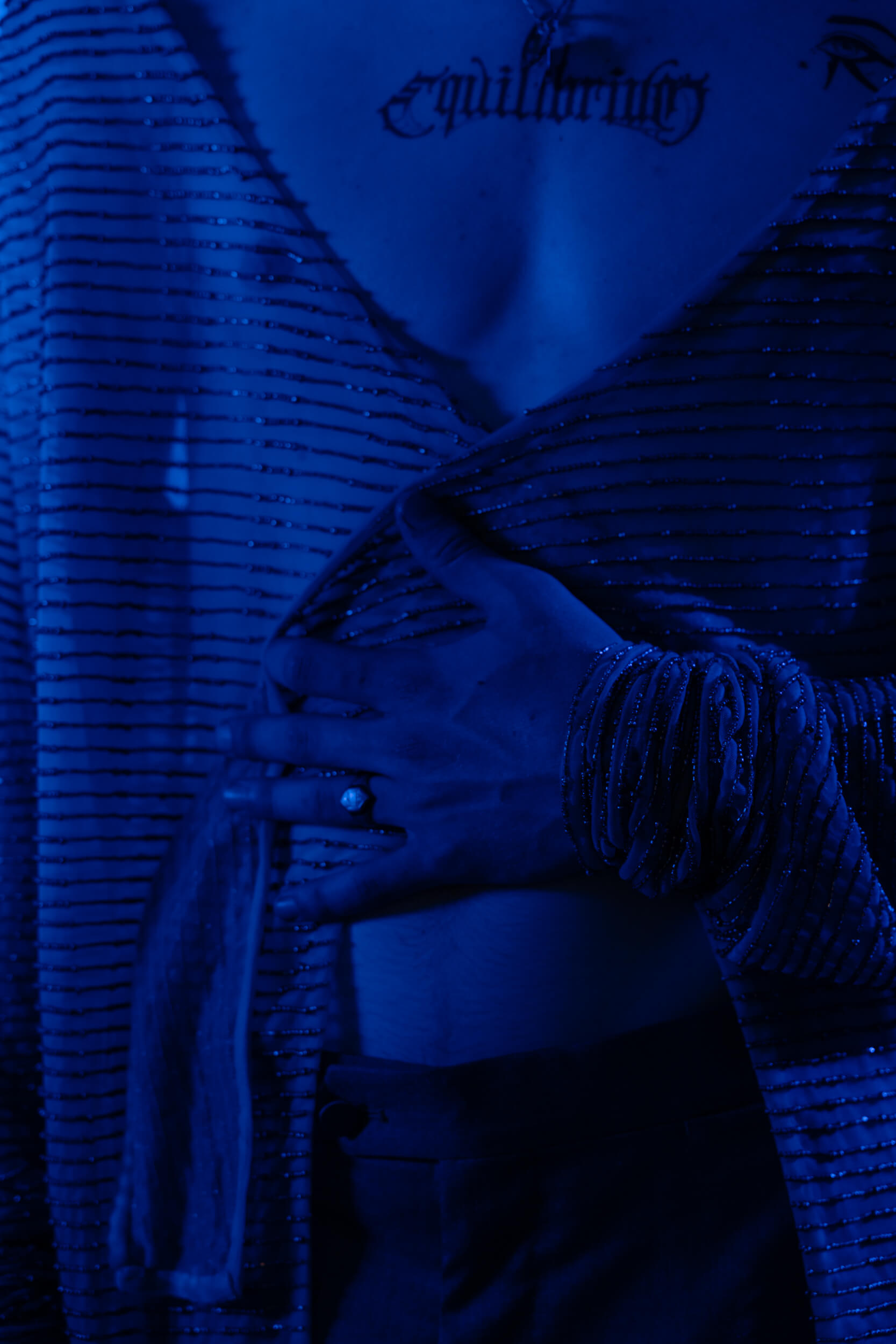
What was your last binge-watch?
The first season of “True Detective” and “Outer Banks”. They are fantastic TV series with an incredible pace and brilliant casts.
I also tend to “binge-play” video games; I played through “Uncharted” 1, 2, and 3 back-to-back, for example.
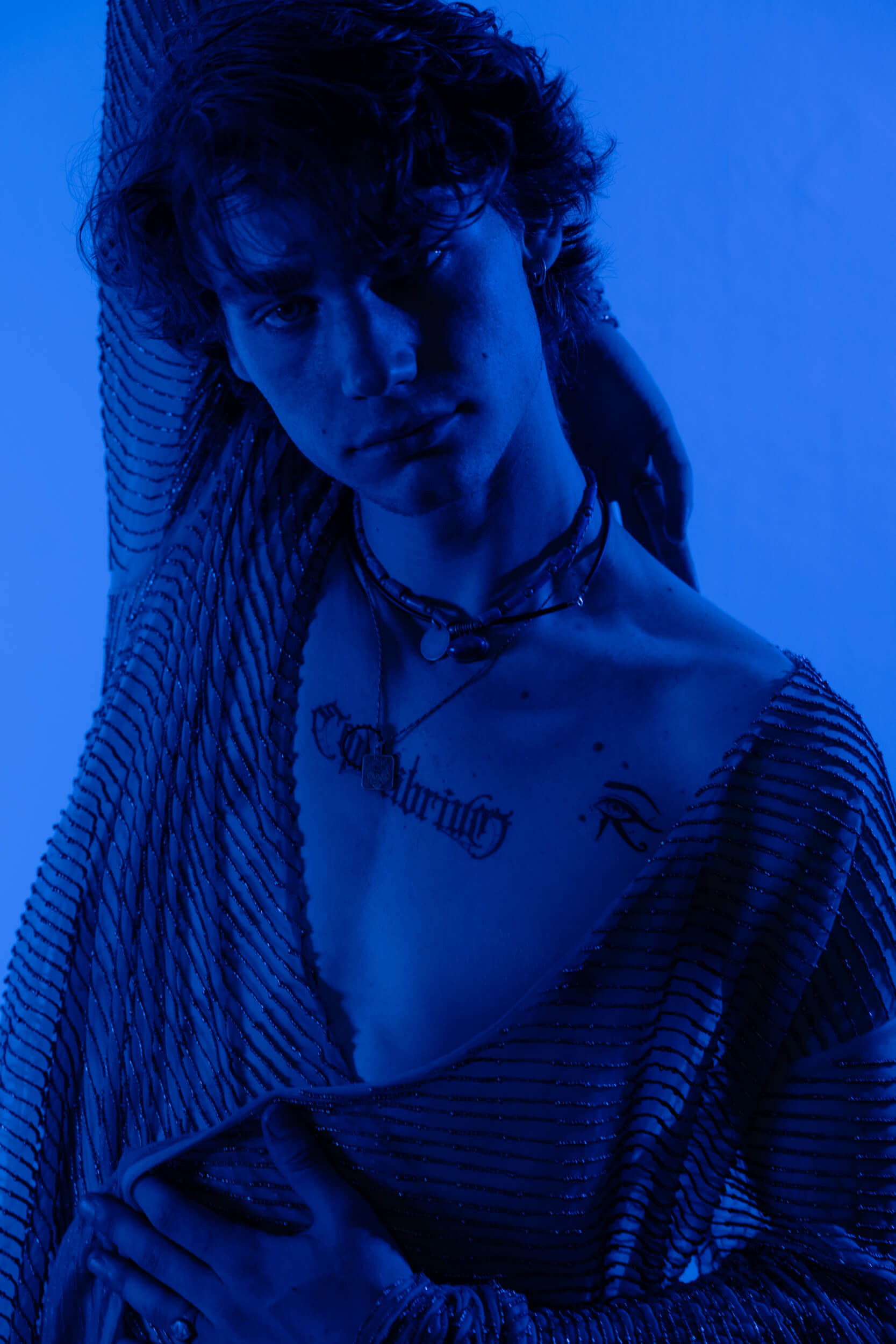
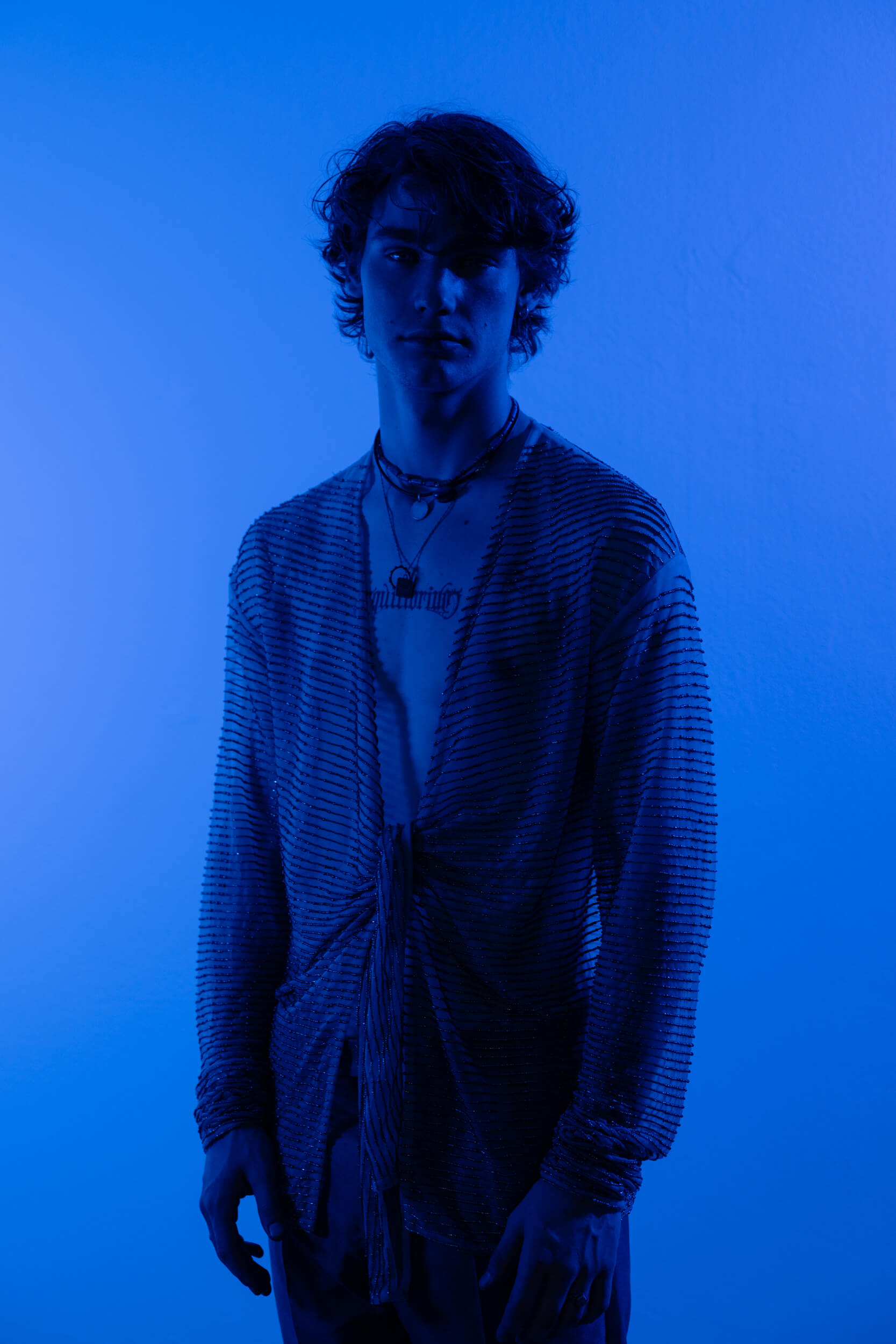
You play the guitar, am I right?
Yes, I learned very recently to play guitar. I got one for my birthday and started studying it. Then, a friend taught me “the sound” of the guitar, along with the technique I was already honing as a self-taught player, and now I often strum.
And what song describes this moment in your life?
Interesting question… “Walzer für Niemand” by Sophie Hunger, which I discovered because it’s in the soundtrack of the movie “La bella estate” by Laura Lucchetti. This one has deeply touched me.
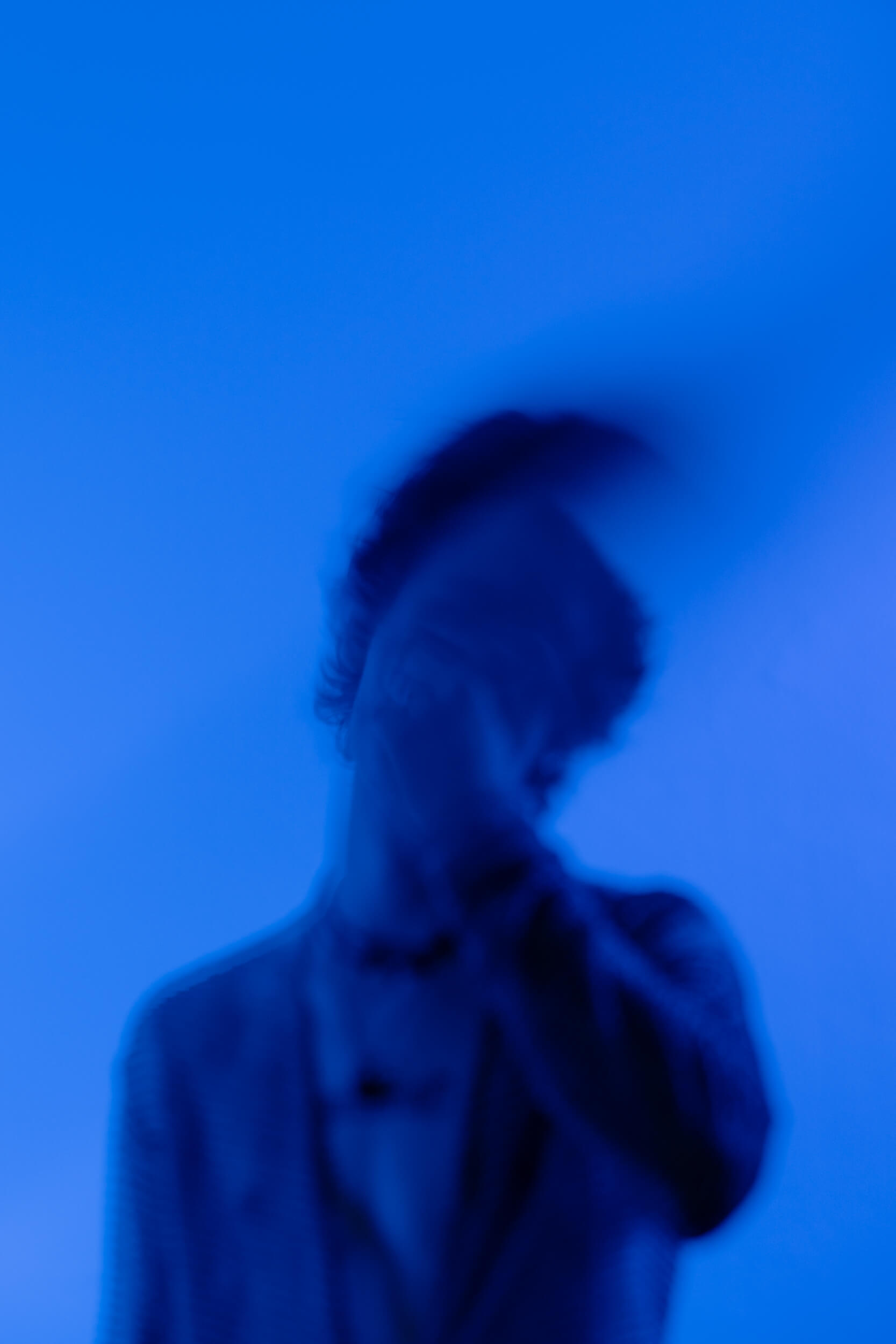
Among the many categories we can put people in if we have to, there are two types of people: night owls and early birds. Which one are you? And what’s your favorite hour of the night or day?
I am a night owl. With the night, I completely detach from the concept of time and enter a loop where there’s only one block, without a before and after. The next day, when I wake up, I remember a specific point from the night before and know that must have been the best, my favorite moment.
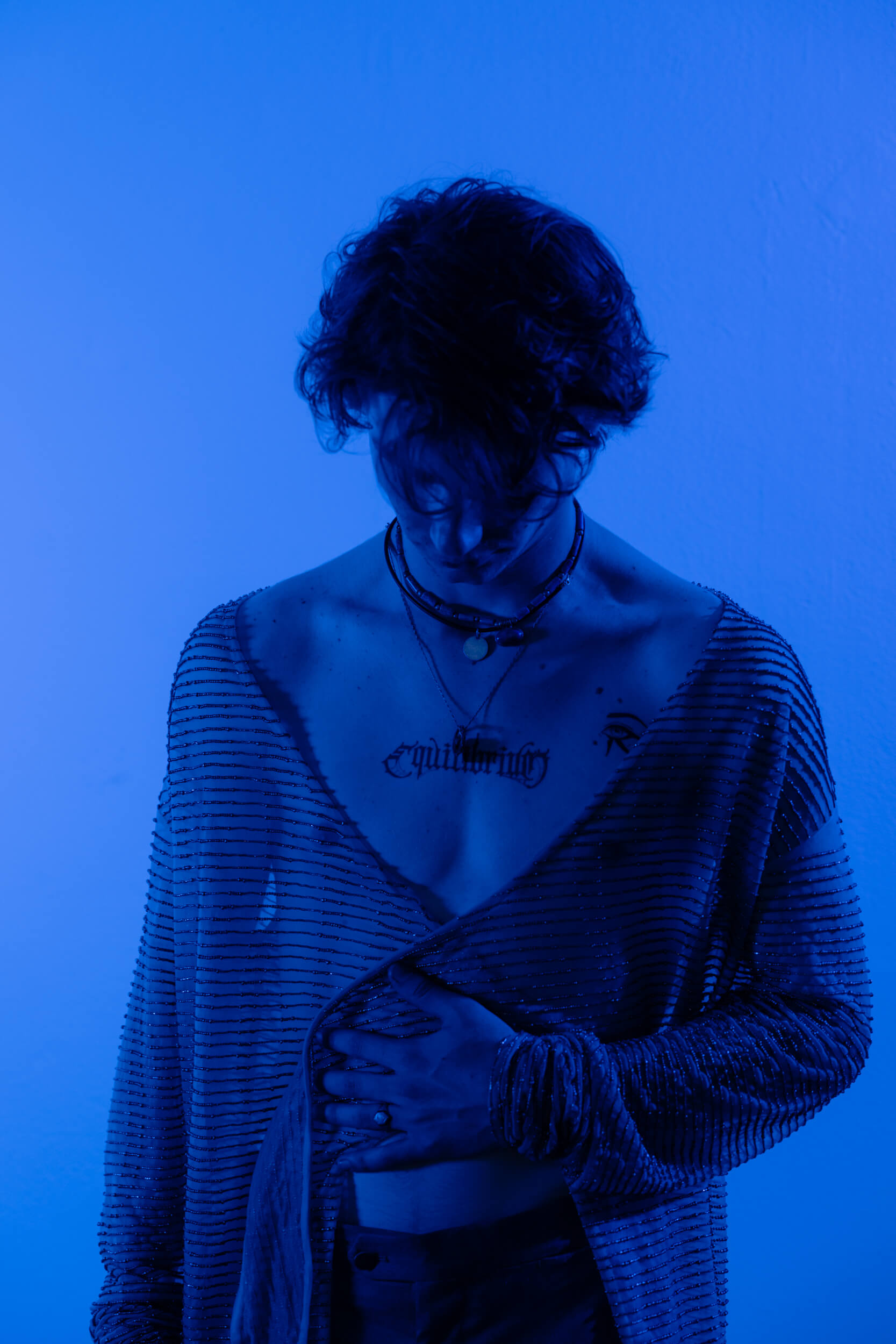
“without a before and after”
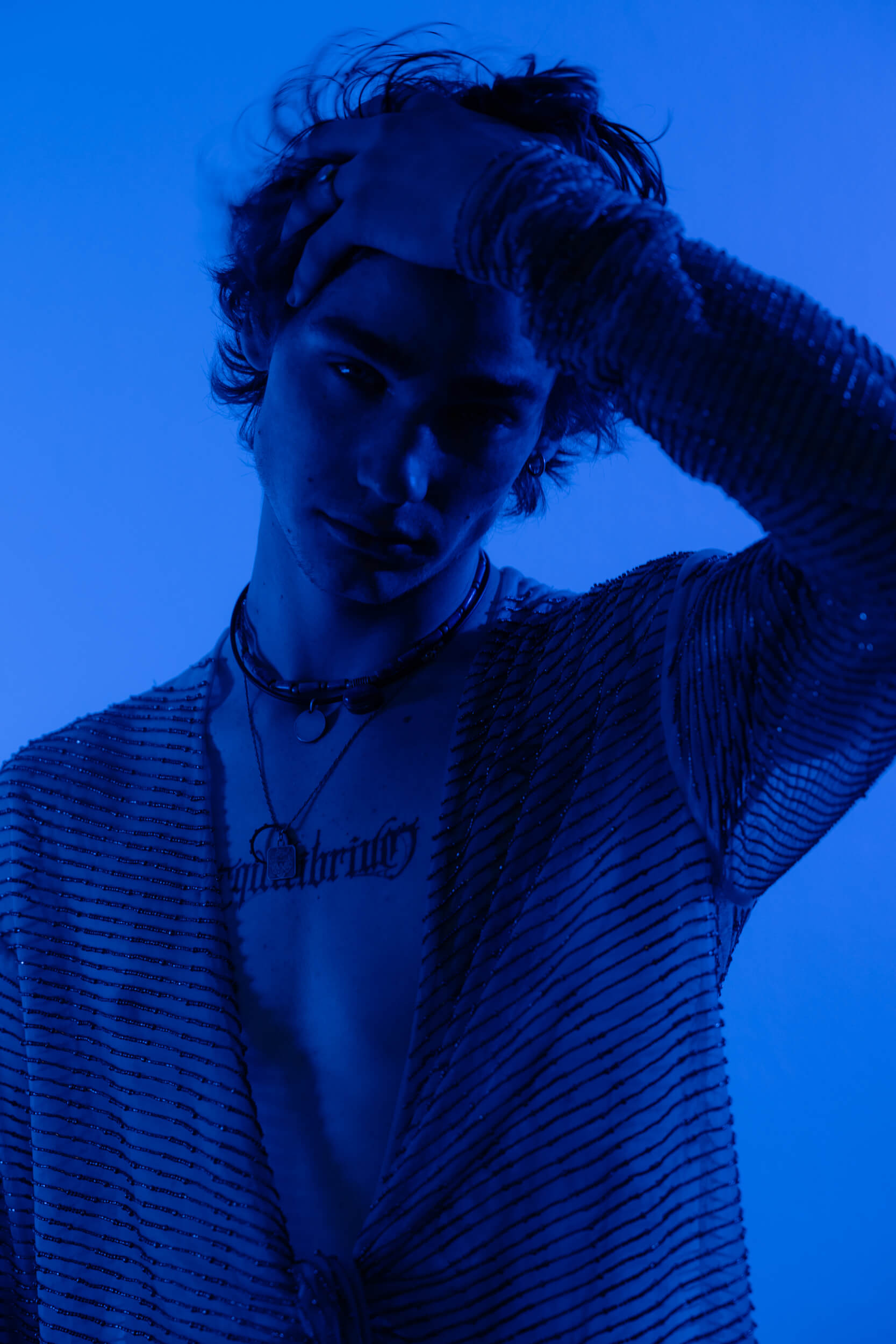
Your greatest act of courage?
Starting a career in cinema. Whether you are predisposed or not, whether you have already started and have connections or not, you still put your hand in the fire and face a test of courage because you bet a lot. So, anyone trying to be an actor should give themselves a high-five, because they are chasing the impossible, and it’s a beautiful pursuit.
The craziest thing I’ve done was a 15-meter jump into the water on an island in Spain; it was a place where few people jumped, also because you weren’t actually supposed to jump from there. It was the coolest jump I’ve ever done.
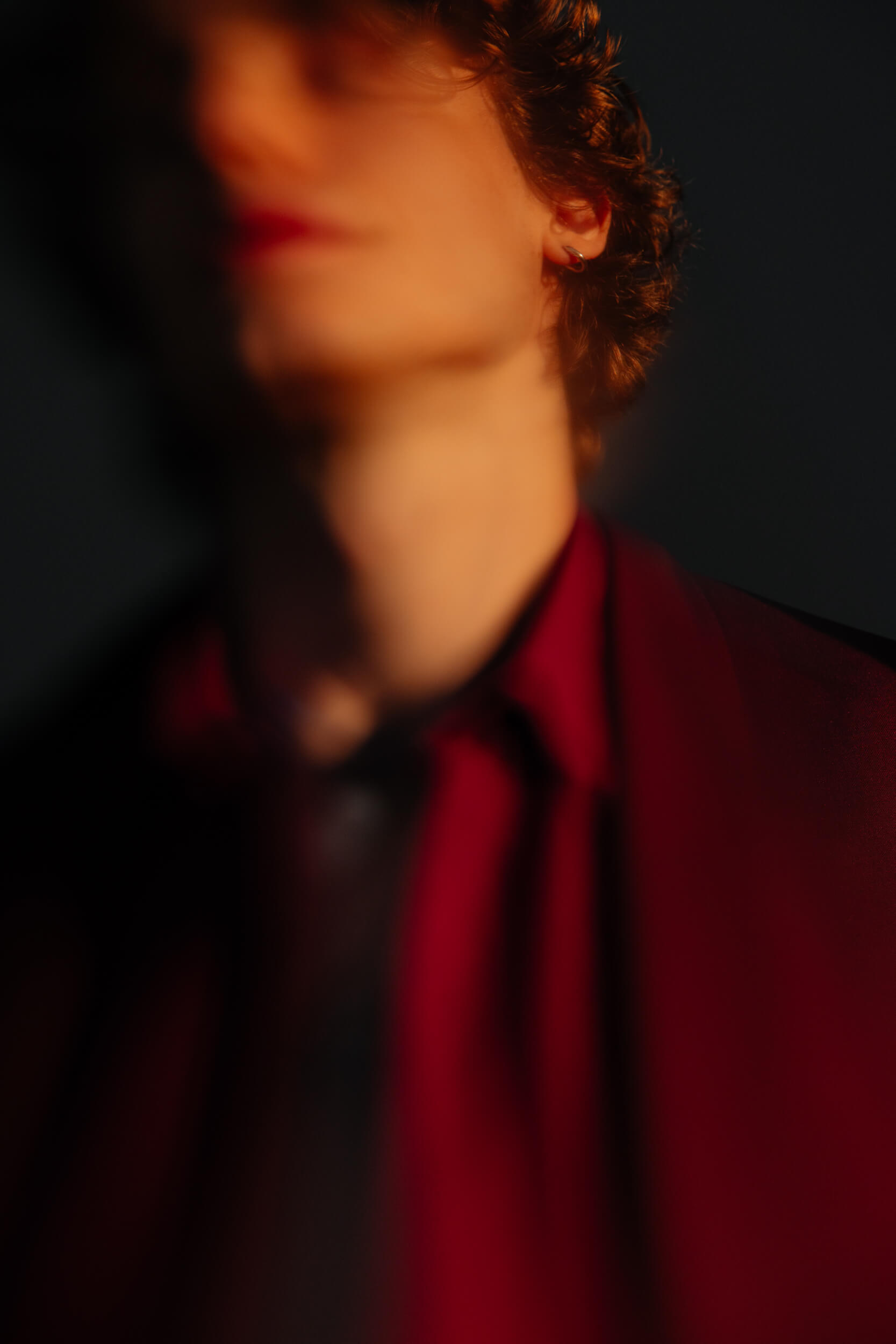
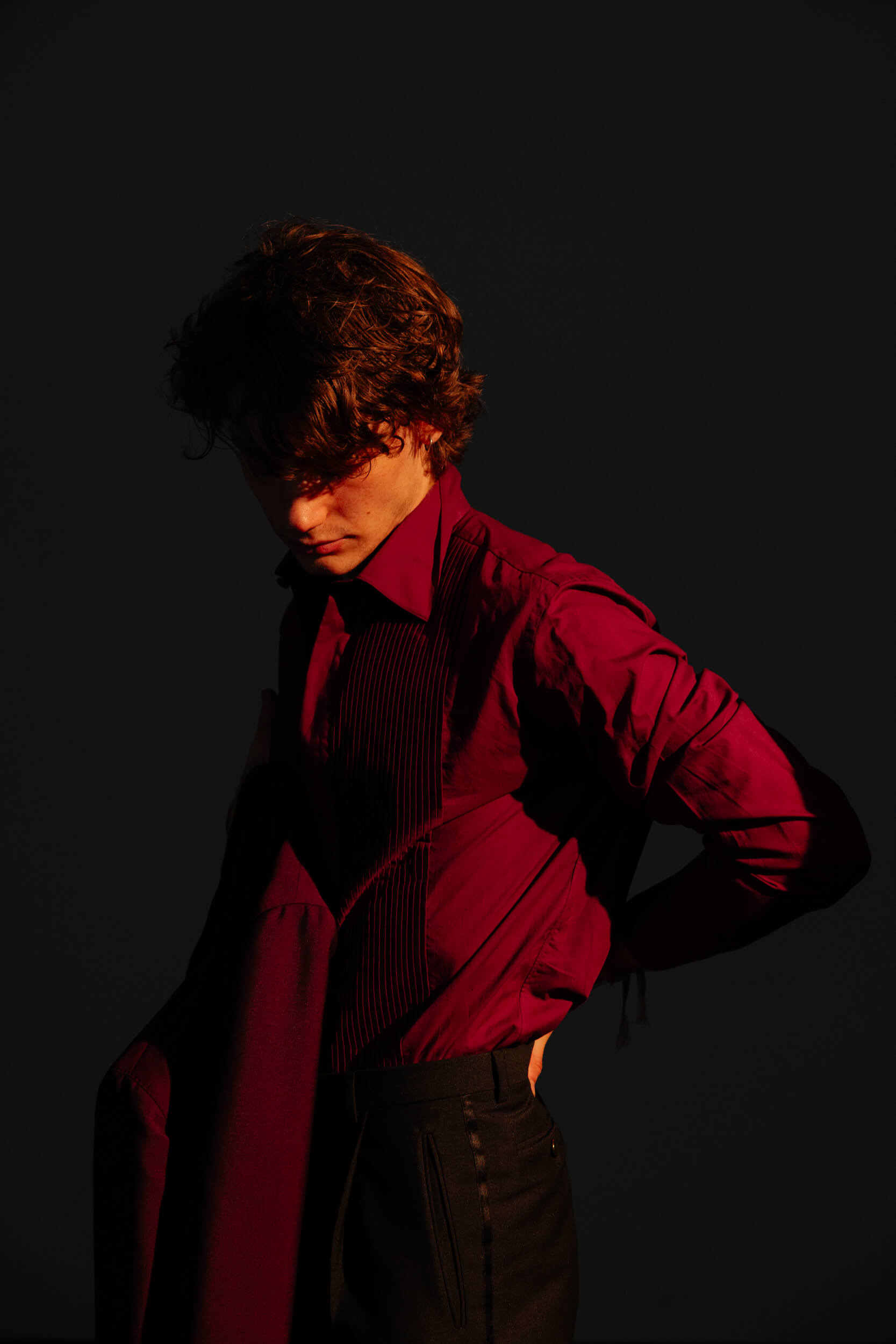
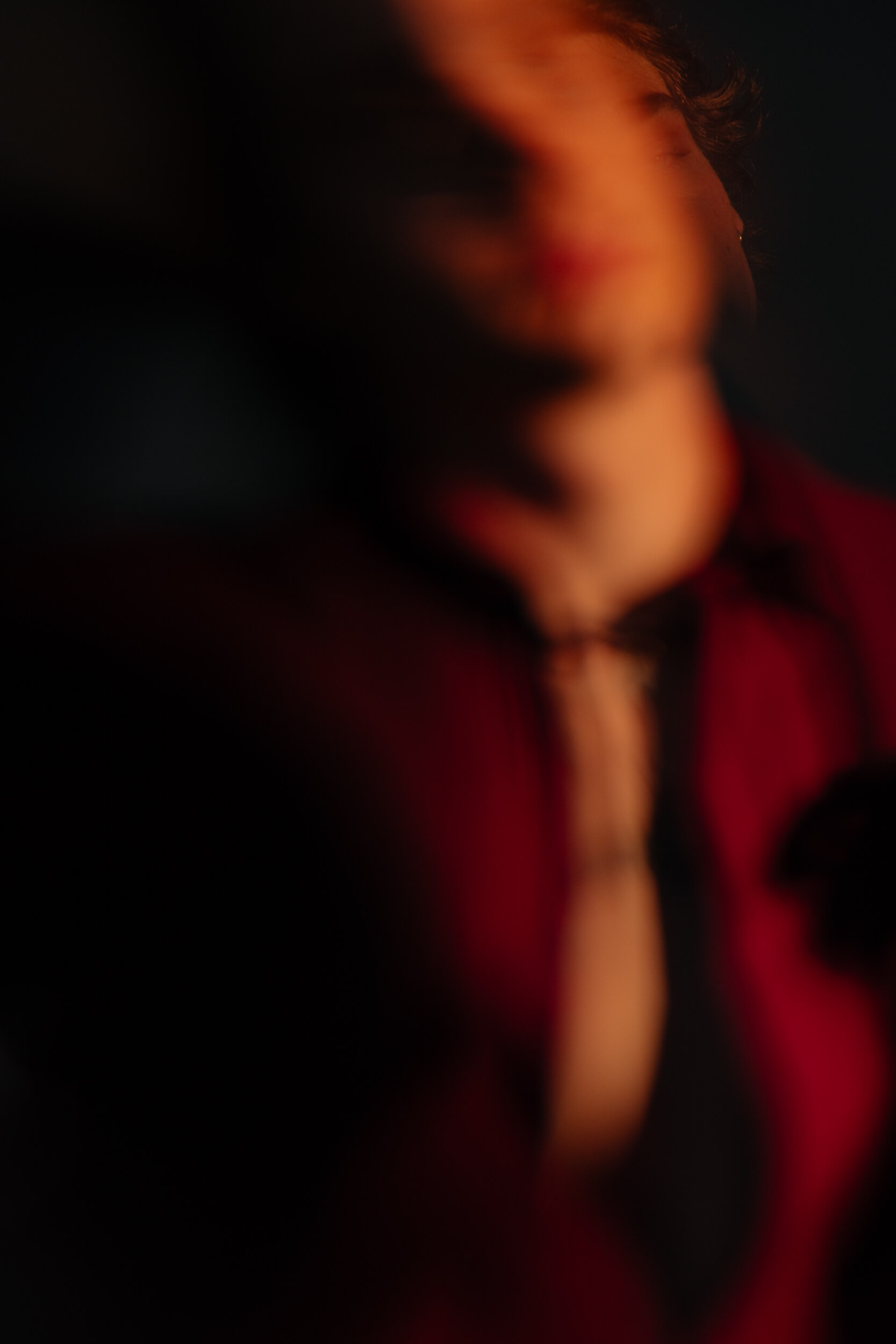
What are you afraid of?
My greatest fear is leaving this Earth without having done good for my family. The idea of leaving my family without me and causing them this pain would destroy me. That’s why, in recent years, I have tortured myself a bit with the need to do as much as possible, telling myself, “If you don’t make it, you’re a failure”. Maybe my greatest fear, in fact, is myself, because I can treat myself terribly. This has already happened to me, even just because of paranoia or insecurities.
It’s true what the Italian singer Tedua says in one of his songs, “The future is in the hands of the weak who have found courage”, and “I wish all of you that your humility doesn’t turn into insecurity. And that your self-confidence doesn’t turn into arrogance” in another. If I had known these songs when I was treating myself the worst, they would have helped me a lot. The search for humility is a trap because you risk becoming the one who pretends to be humble, and when you fake humility, it’s worse than arrogance. However, in the search for humility, you also end up belittling yourself, as happened to me. What a drag, enough already, tell yourself “well done” sometimes. But it took me a while to understand this.
As Jim Carrey says: “Life doesn’t happen to you, life happens for you.”
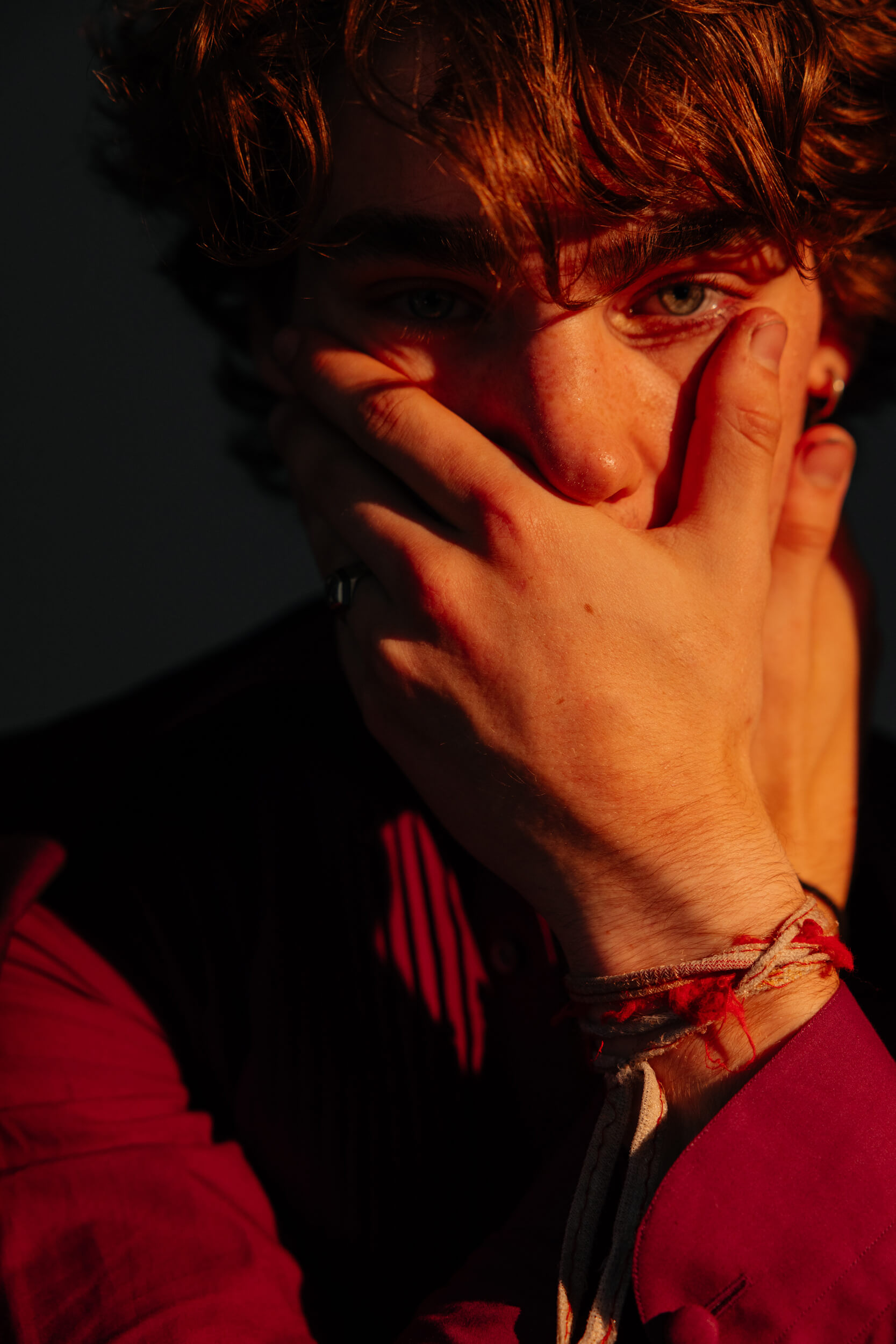
“The search for humility is a trap because you risk becoming the one who pretends to be humble, and when you fake humility, it’s worse than arrogance.”
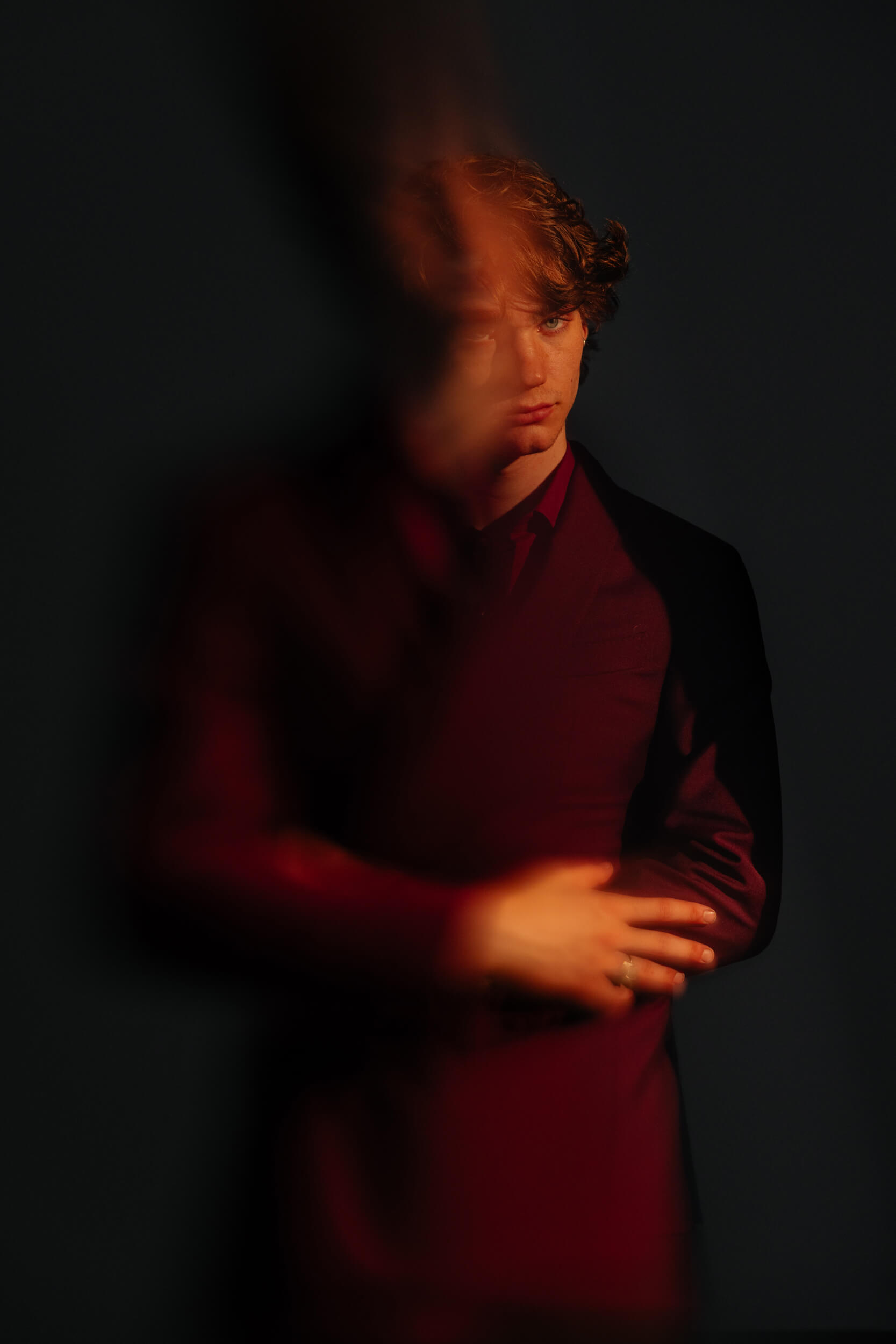
What does it mean to feel comfortable in your own skin?
It’s tough work. To feel comfortable in your own skin, you need to uproot yourself a lot, and do important work on yourself. Studying Jacques Lecoq helped me a lot: he wrote a beautiful book called “The Moving Body”, in which he explains how to approach theater. He says that to start, you begin with the neutral mask, which is then overlaid with all other masks until the last one, which is that of the clown. The point is that to reach the neutral mask, there is still work to be done: you have to earn that mask by first removing all the structures you have created for yourself or that have been created by the circumstances in which you live. This is personal work, in which you have to find your identity, and depending on each person’s sensitivity, there is a different answer. It’s at the end of this process, in my opinion, that you manage to feel comfortable in your own skin because when you have found the neutral mask, you have also understood all aspects of your personality.
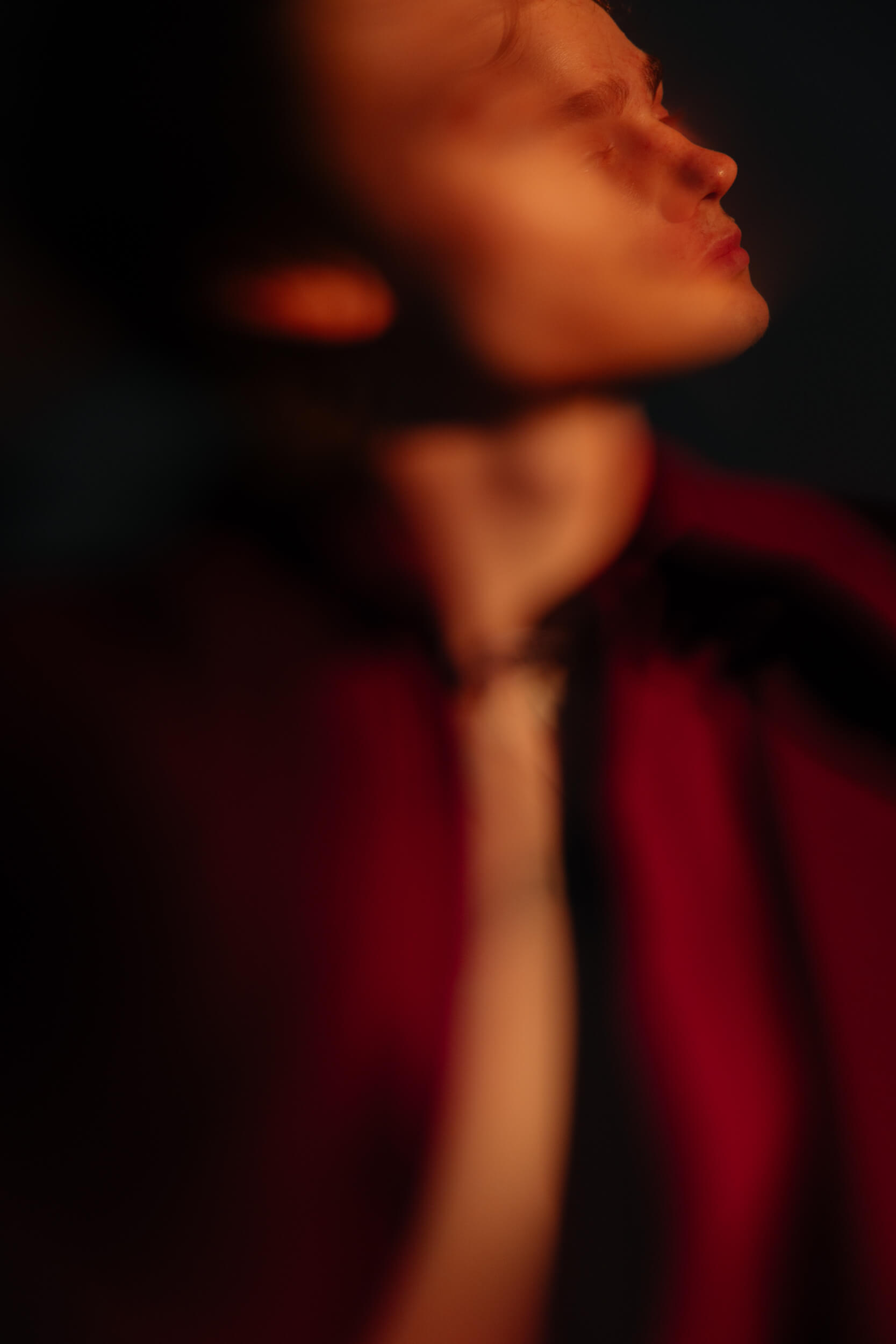
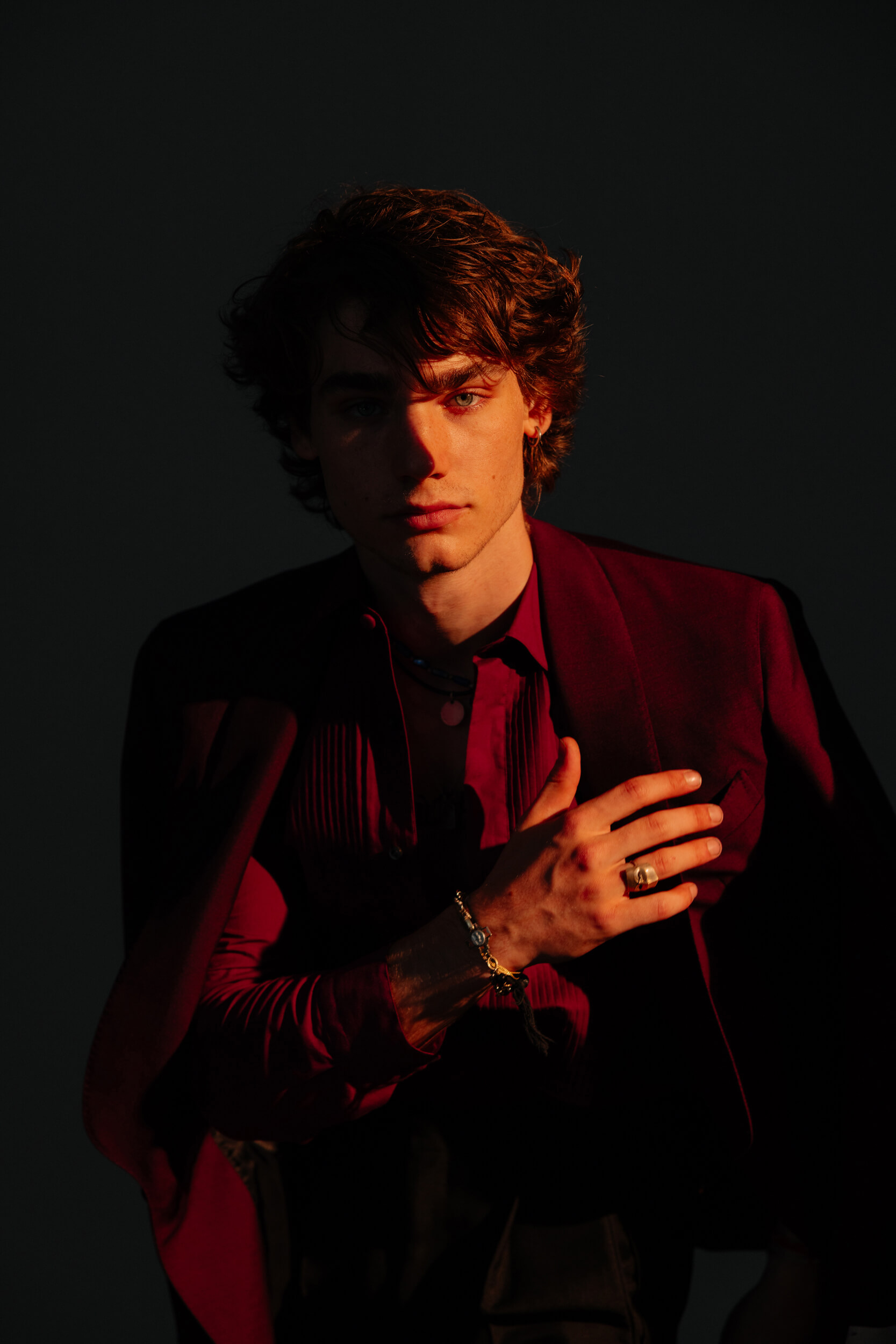
What is your happy place?
It’s my home, where my parents, my sister, my brother, and my friends are. For a while, I was better off away, because I needed to work, but when you come home and find your mother and father you haven’t seen in a long time, whether you are on good or bad terms with them, it’s an unparalleled feeling. Family comes first, and there’s no doubt about it. You will always fight for your family, and that’s how it should be.
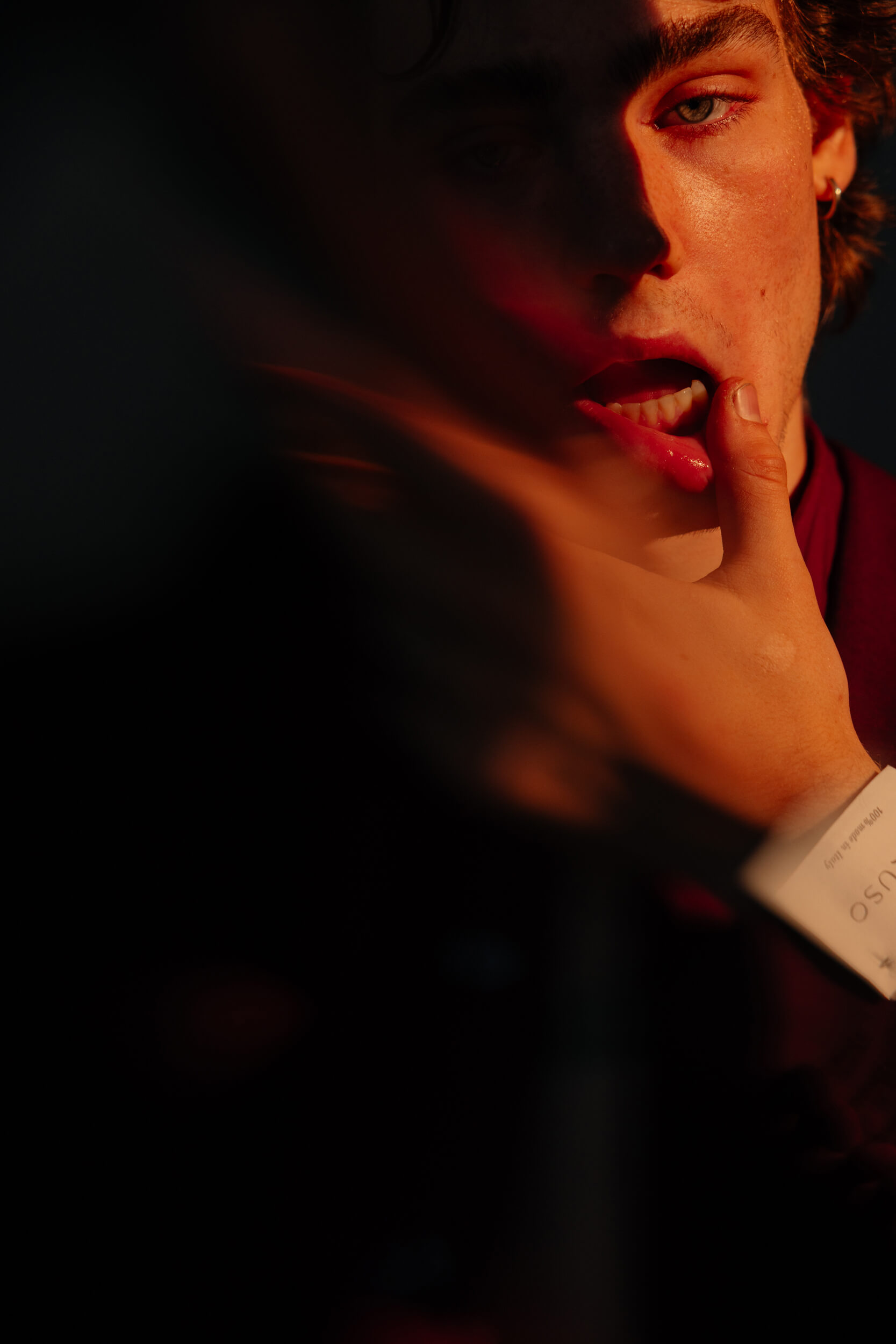
Photos & Video by Johnny Carrano.
Grooming by Sofia Caspani.
LOOK 1
Total Look: Leonardo Valentini
LOOK 2
Total Look: CO|TE
LOOK 3
Shirt: Leonardo Valentini
Trousers: Marc O’Polo
LOOK 4:
Total look: Caruso
Thanks to Maximilian Linz, Studio RE Media Relations, Beside Communication and Karla Otto.

